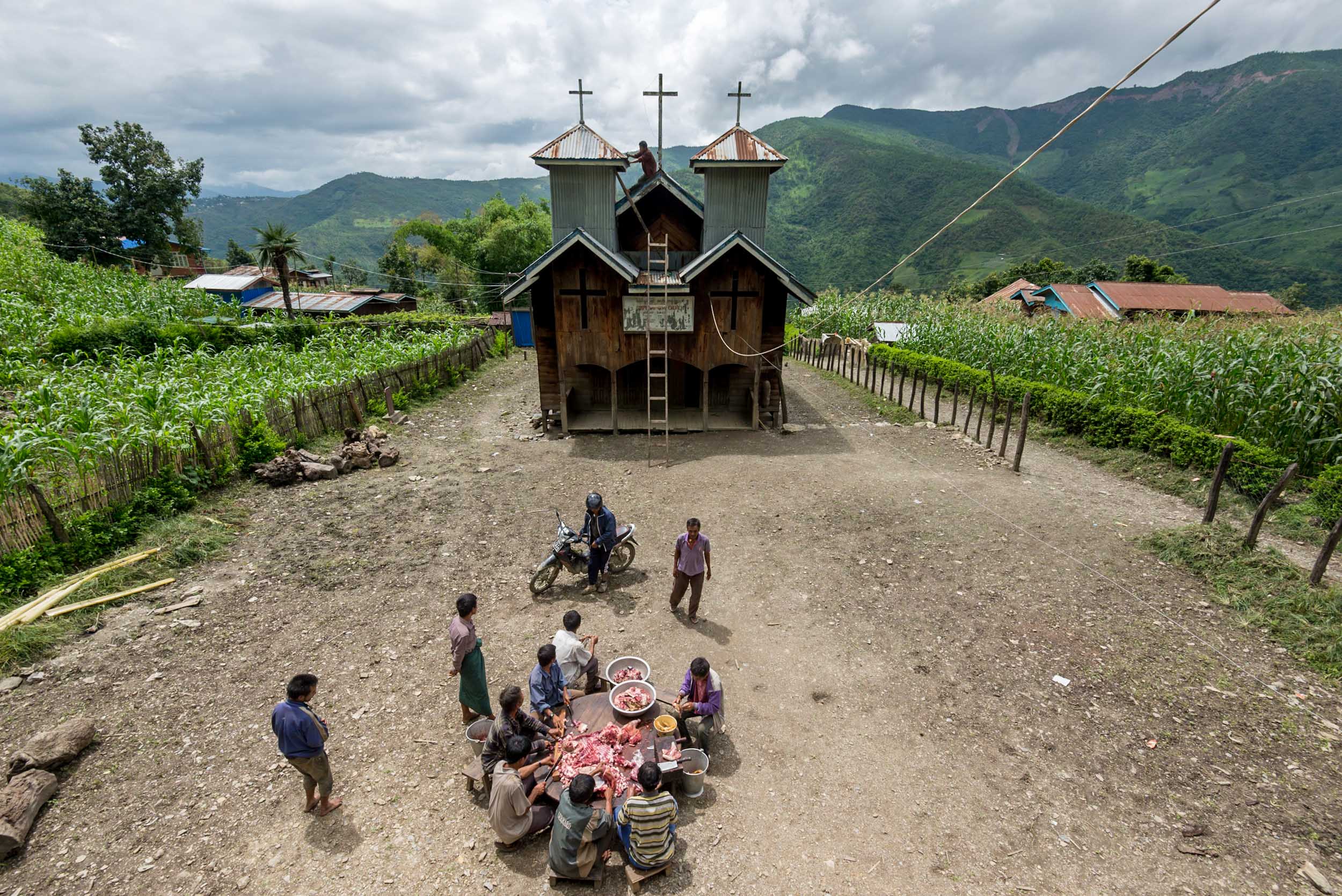
Adam's Apples: A photoessay for DanChurchAid
A photoessay for NGO DanChurchAid on apple farming in Dimpi village, Chin state, Myanmar.
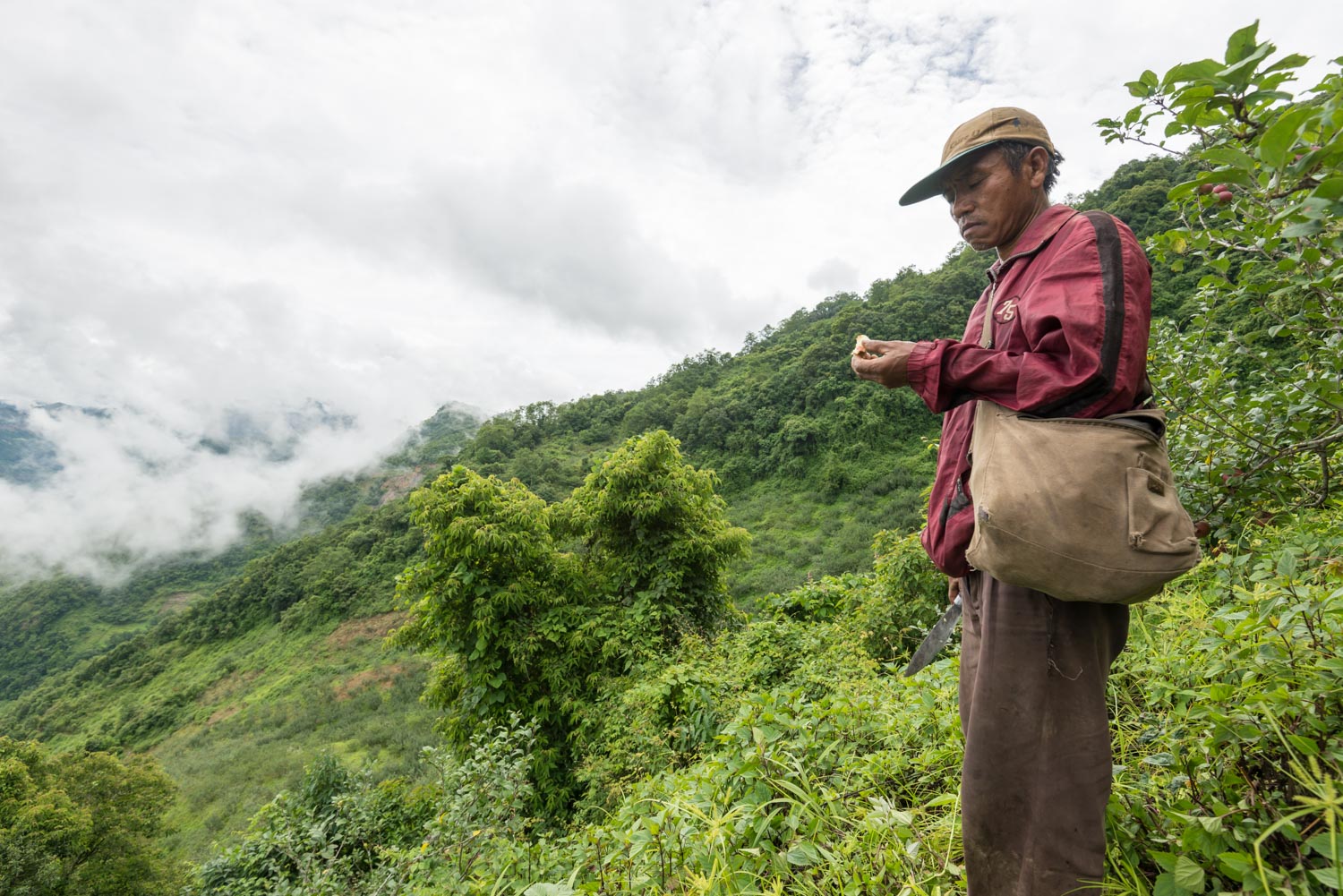
The apple farmers of Chin state
Jin Khan Dar, an apple farmer of Dimpi village, inspects his crops in his highest plantation (6500 ft). This is a short photoessay produced for DanChurchAid, and details the lives of the village's apple farmers. Many citizens of Chin state are totally dependent on apple farming as their sole source of income.
Chin state is in Myanmar's extreme north-west, and is one of the poorest, most isolated parts of an already impoverished country. Malnutrition, natural disasters, isolation from healthcare, infrastructure and education are problems that affect almost every citizen in the state.
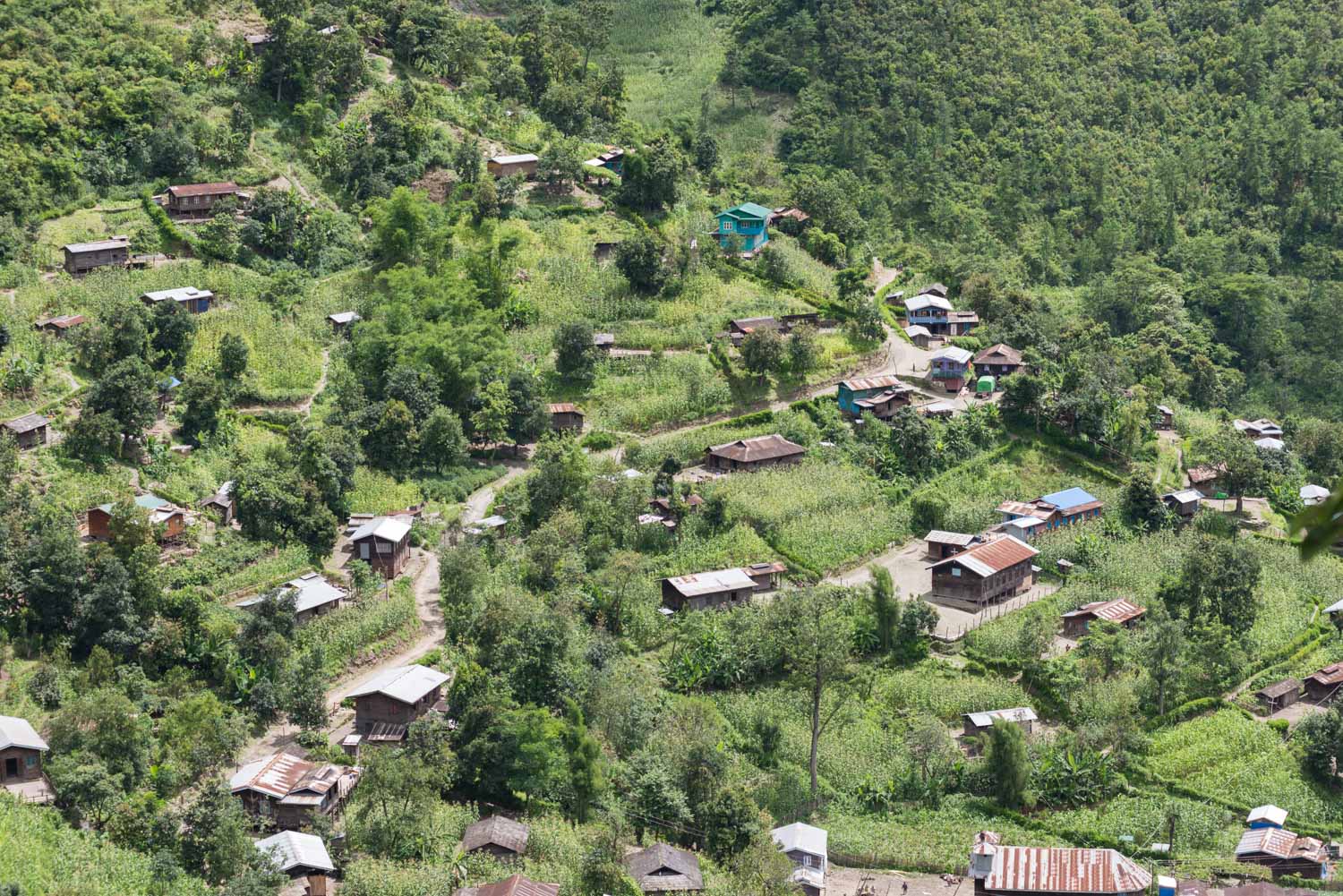
Dimpi village
Dimpi village, Chin state.
To get there requires a 2 hour flight or a 20 hour bus from Yangon to Kalaymyo, a 3 hour drive from Kalaymyo to Sozaang village, and a 6 mile motorbike ride from Sozaang to Dimpi.
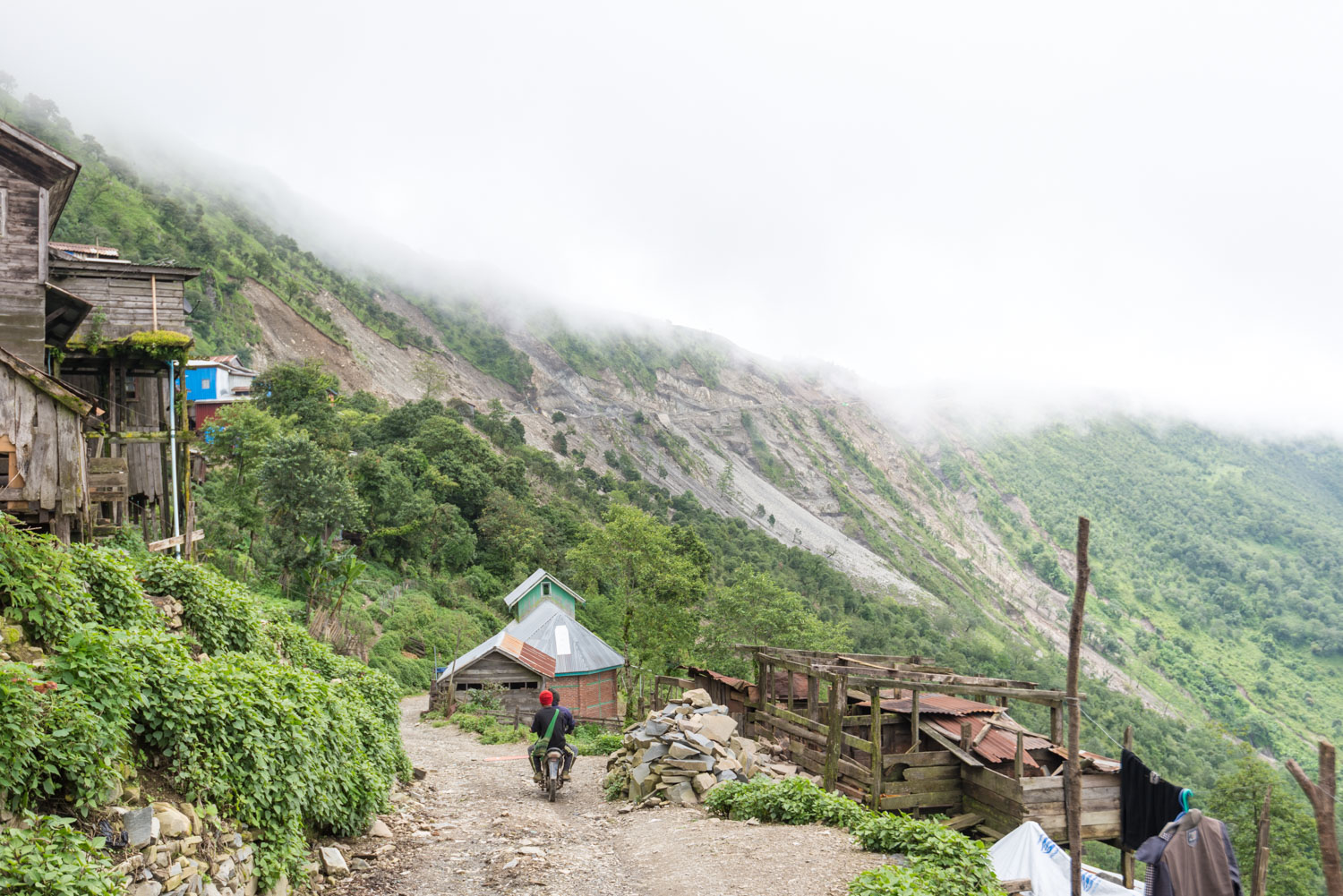
Start of Dimpi village trail
Villagers start down the 6 mile trail to Dimpi village.
The track shortly becomes too narrow for cars to traverse, so walking or motorbikes are the only options. The exit from Sozaang village - on the hill in the background - collapses regularly.
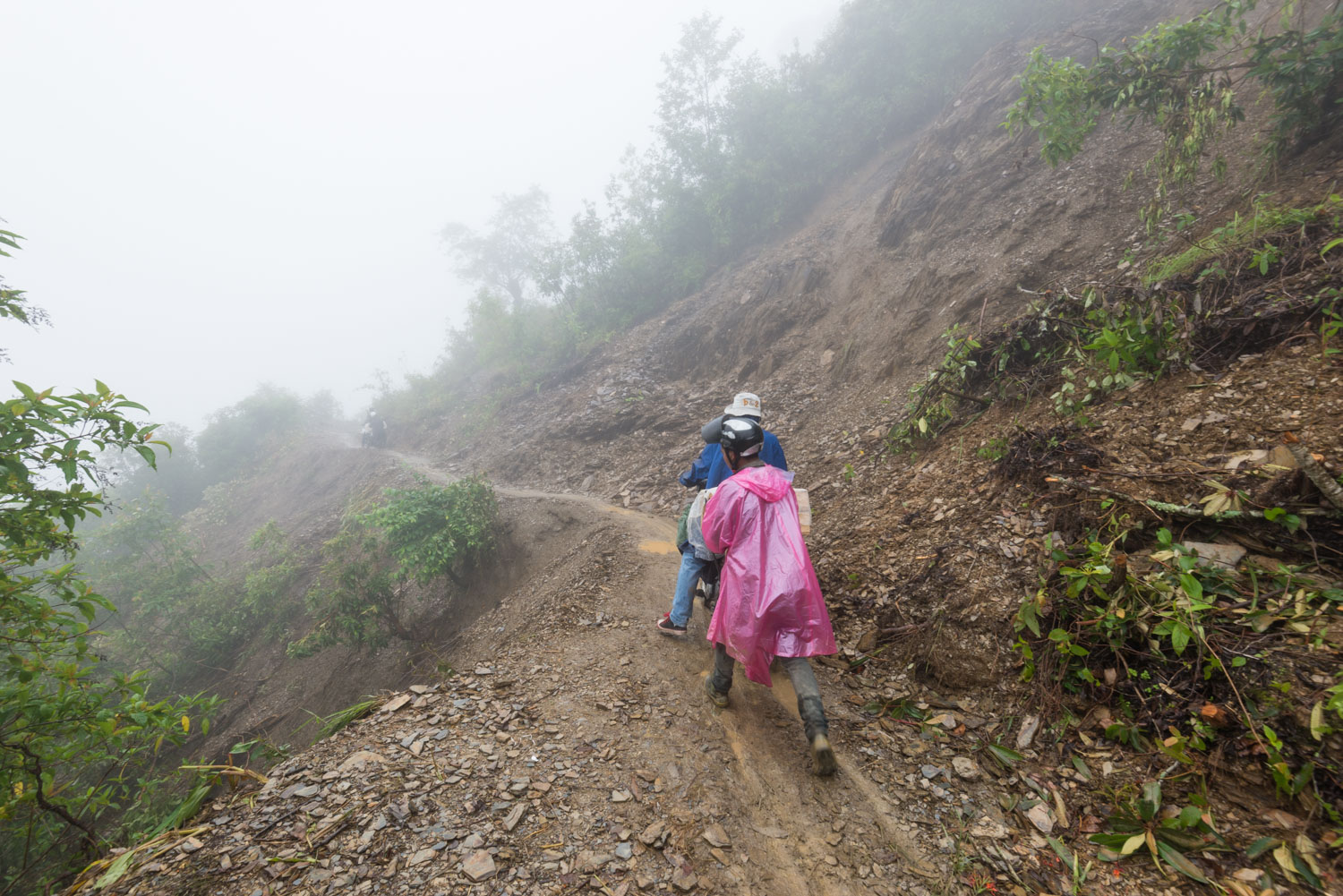
Collapsed section of Sozaang-Dimpi village trail
Landslides are a major hazard in Chin state. Here, rain has collapsed so much of the path that crossing it is risky, especially for an overburdened motorbike.
All of the goods that are not created in the village (rice, household goods, clothes etc) must be taken in by bike or on foot.
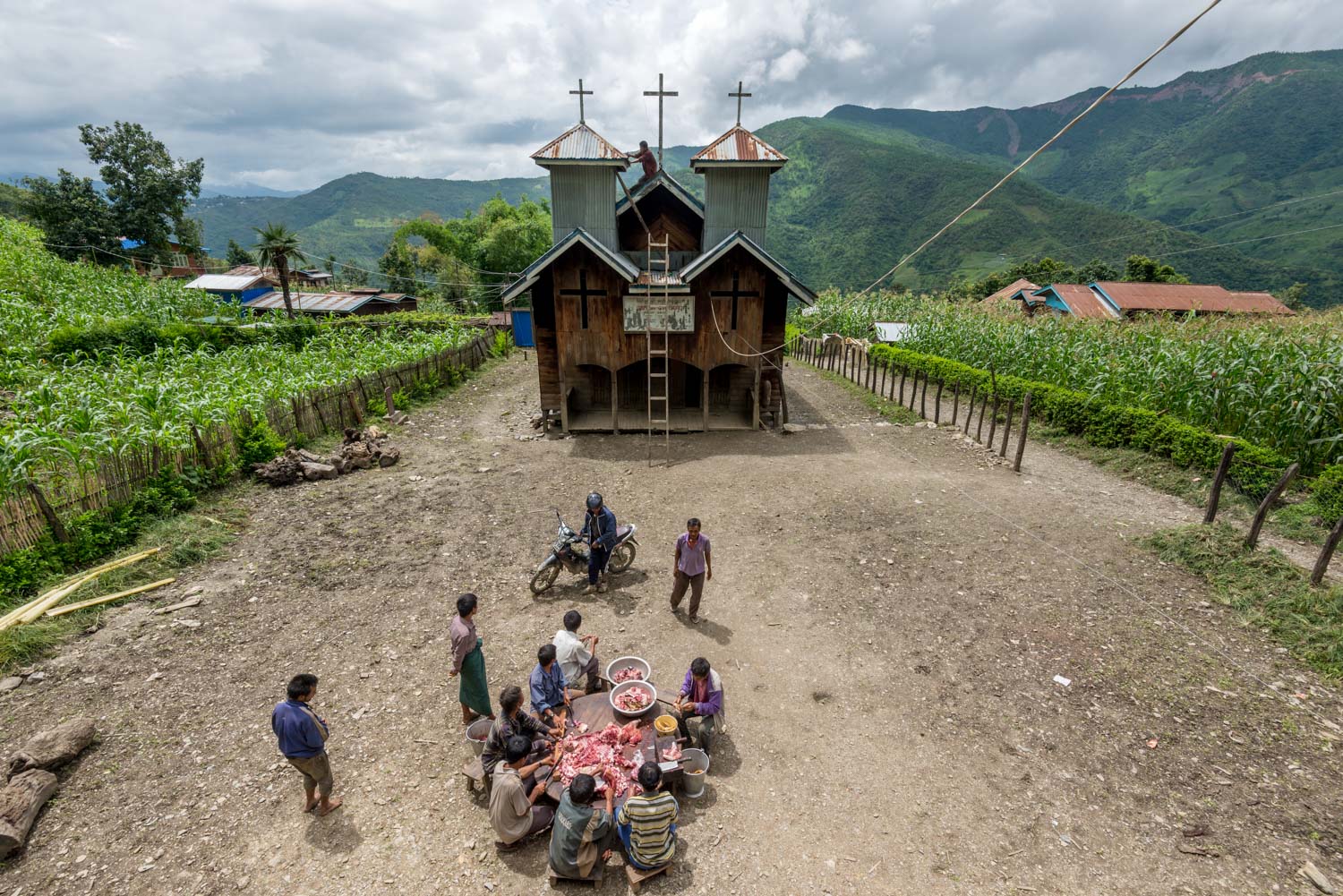
Dimpi Baptist Church
A group of villagers are butchering a pig in the communal area in front of the church.
Chin State is very unusual in Myanmar in that it is almost entirely Christian, although there are many denominations present within that grouping.
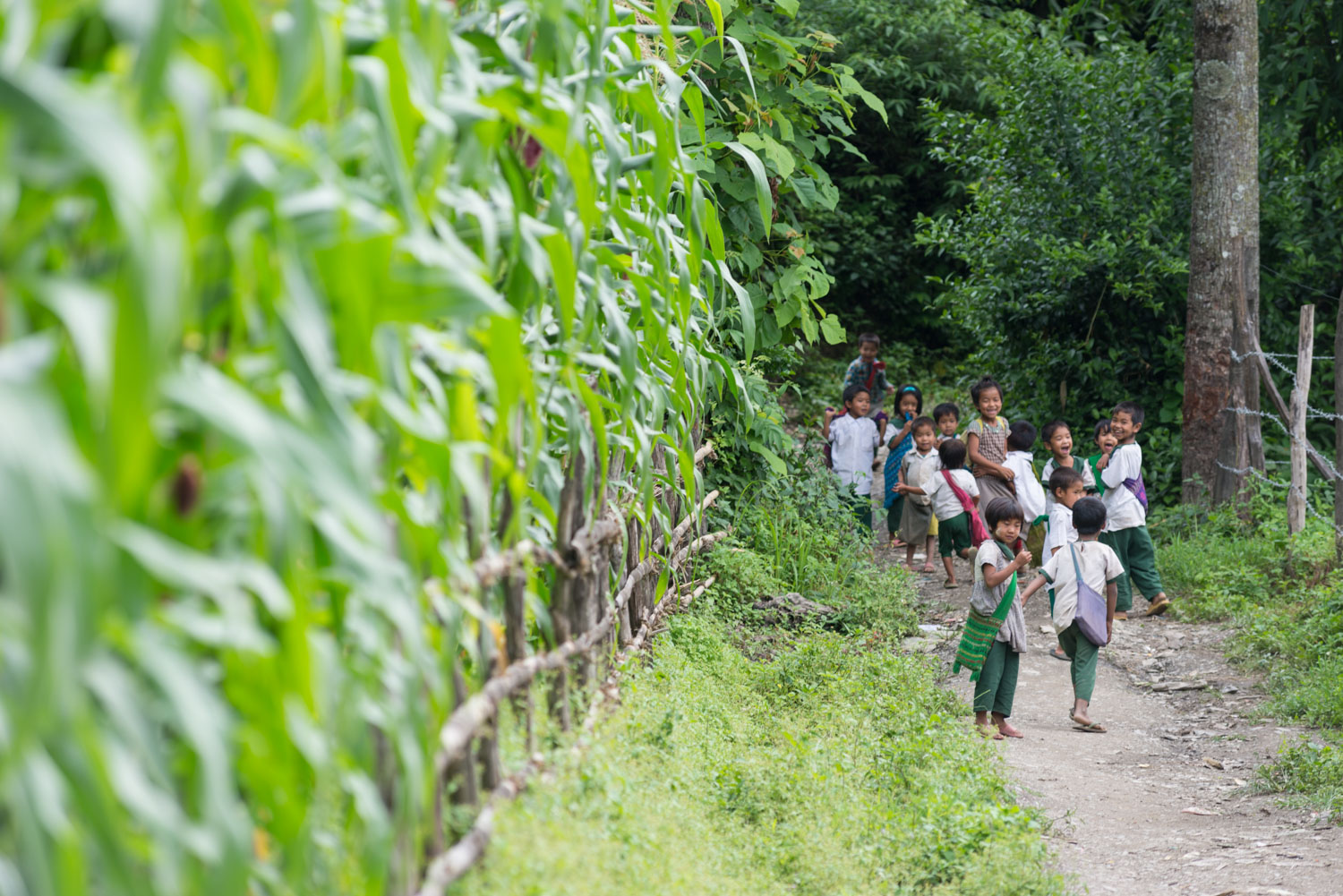
Dimpi schoolchildren
As these children leave the schoolyard they are surrounded by small home gardens growing maise, amongst other crops.
In an area with as little manageable land as Chin state, home gardens are a vital source of household foodstuffs.
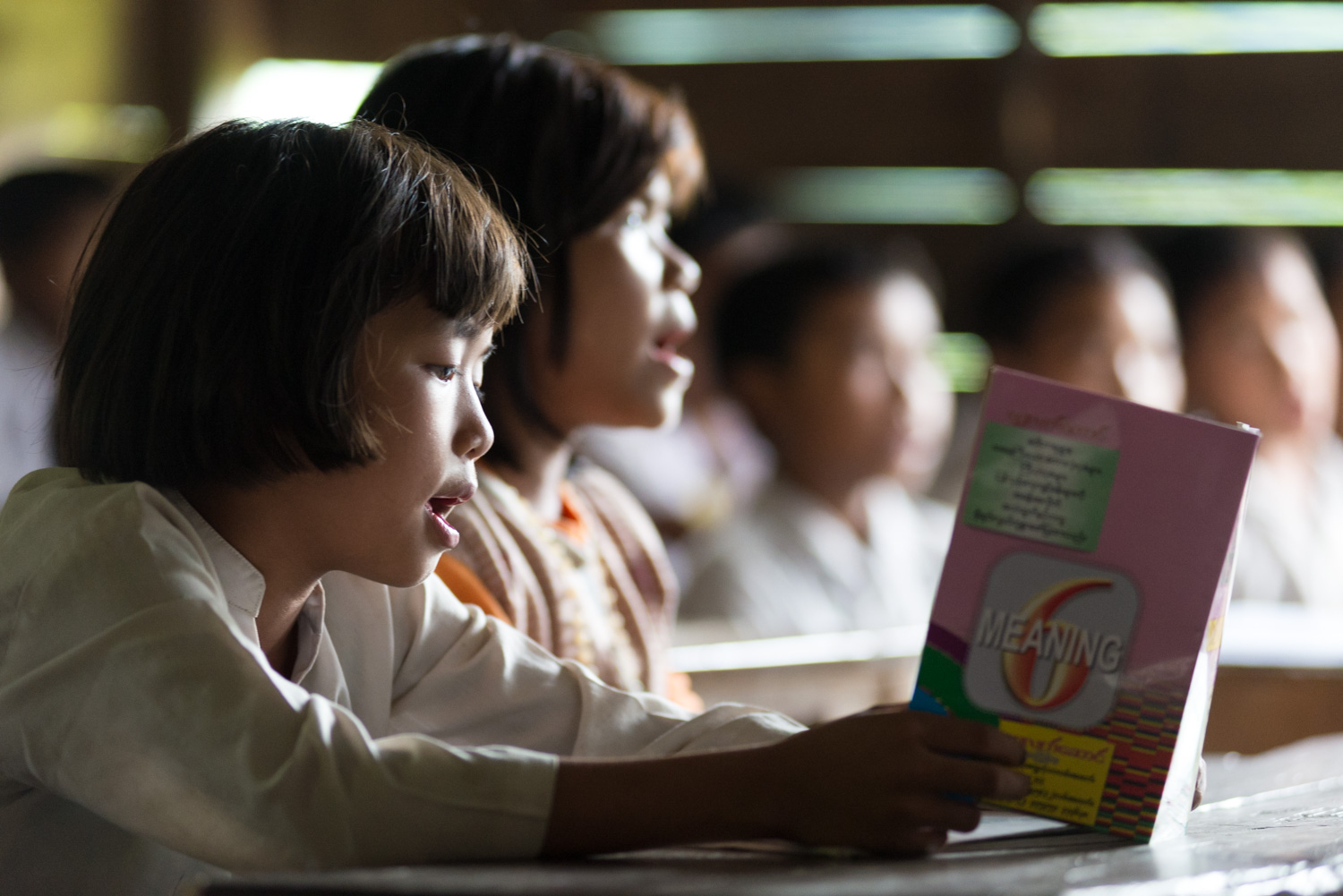
Government middle school
Some of Dimpi's 300 students learning by rote - the teacher reading and the students repeating in unison.
In Government schools in Myanmar, teaching must be done in Burmese rather than the local ethnic language. Chin has a multitude of local languages, that can differ from village to village within a 20 mile radius.
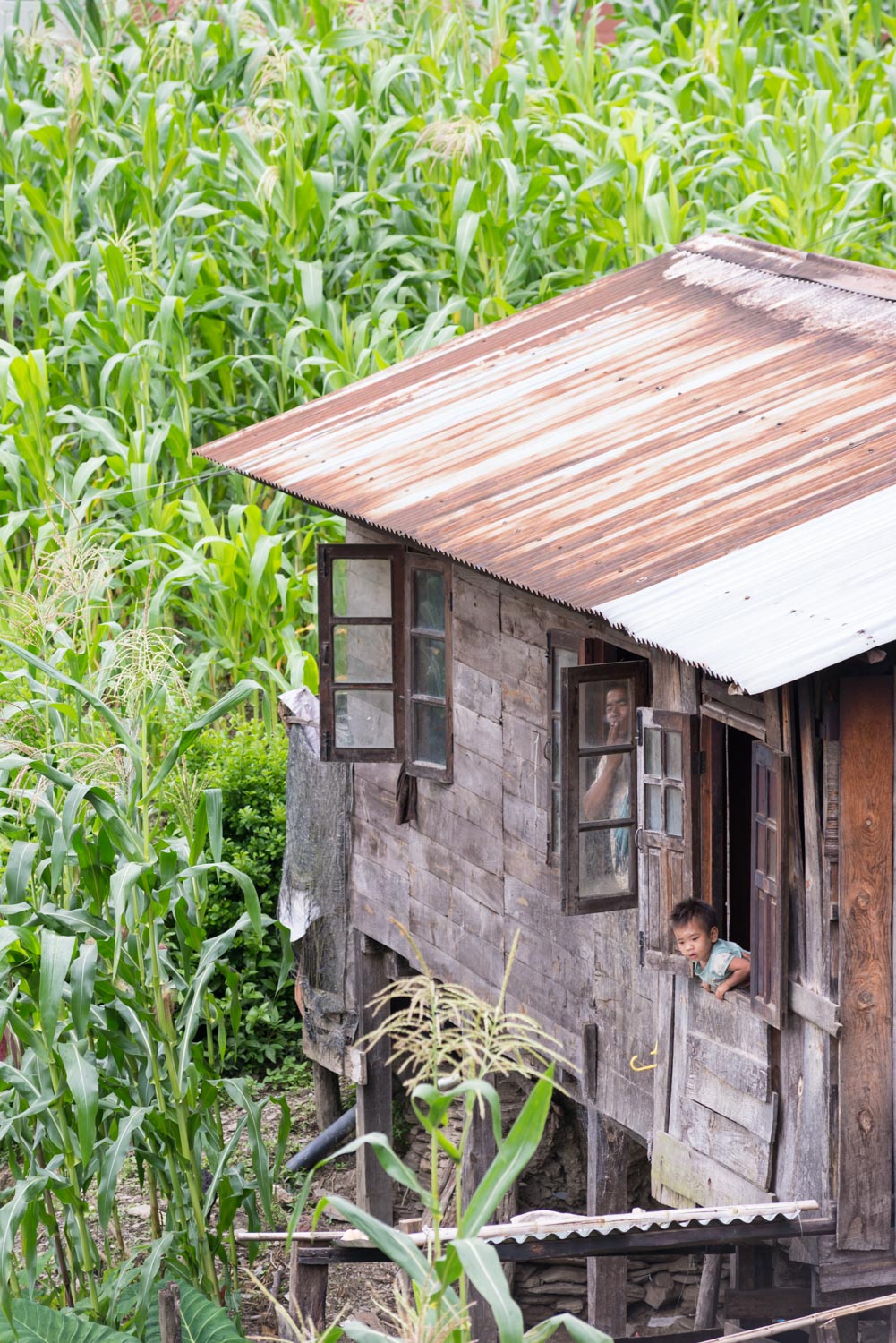
Dimpi old and yound
A very young, and a much older member of a household peer of its windows.
Chin state suffers an enormous brain drain, with many young people moving away. This is due in part to the state's Christian roots, which have led to many young Chin people speaking quite good English. This makes them desirable employees in wider Myanmar and abroad, but also strips villages of much of their young workforce. In Dimpi, 32 of the 200 households have relatives living abroad in Malaysia and USA. When possible, they send money home to their families.
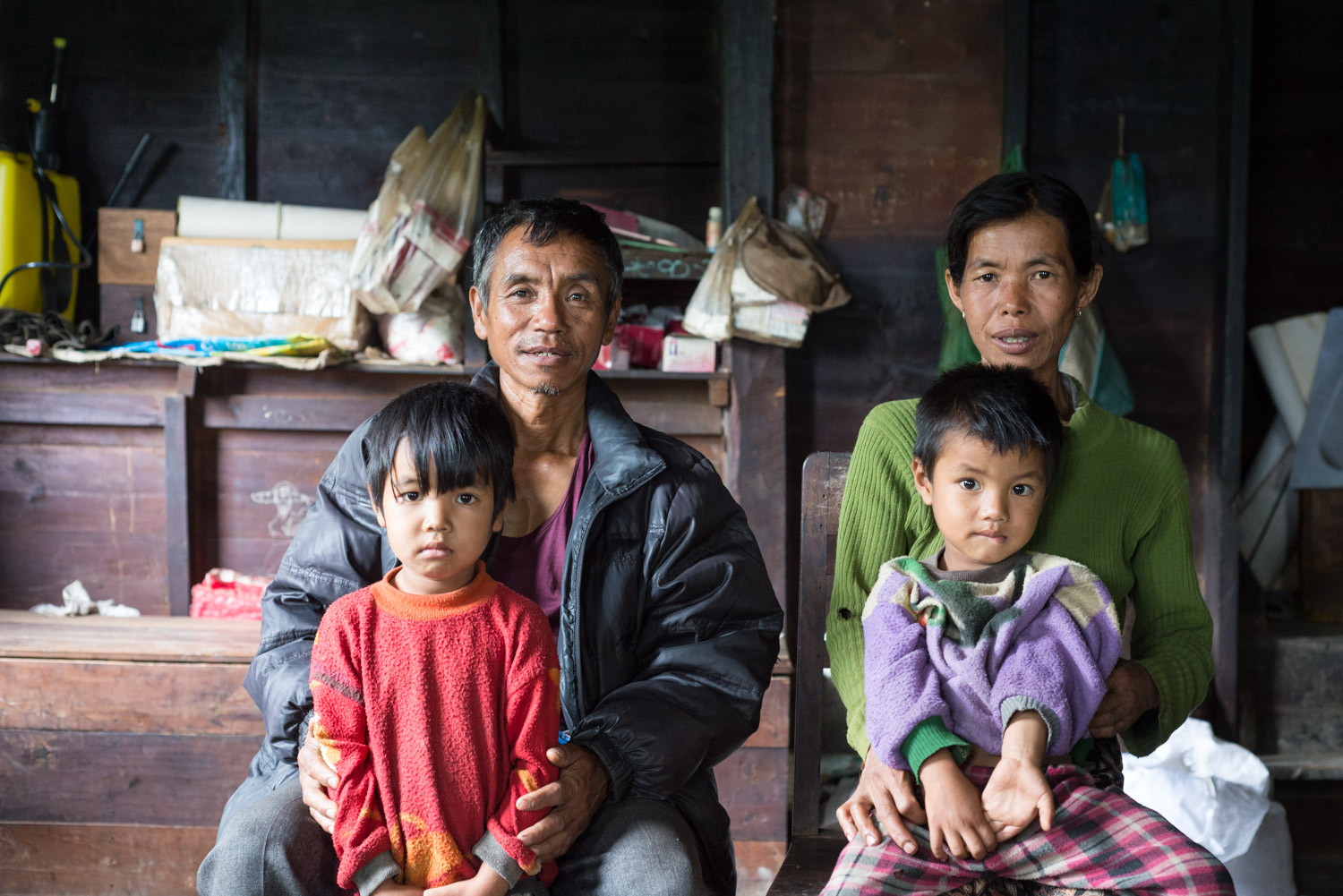
Jin Khan Dar and family
Apple farmer Jin Khan Dar (60), his wife Nyaung Thian Khup, and his children Jin Cian Khoi (5, left) and Khai Ngaih Zeng (3, right) pose for a photo.
These are the youngest of 9 children, and apple farming is their only income. In the best years, his orchard has produced 3000 viss (around 5000kg) of apples. Last year saw a catastrophic reduction to around 200 viss (around 280 kg). Jin Khan Dar lacks the knowledge to explain exactly why this happened, but believes it was due to unusually heavy rain when the fruit trees were flowering.

Thawng To Mang
Thawng To Mang, 49 sits in his home.
Another apple farmer, his 5 surviving children and wife live in Kalaymyo while he remains in Dimpi alone to tend to the crops. His eldest son, pictured to the left behind him, was killed in a motorcycle accident in Kalaymyo while studying at university. He was only 20.
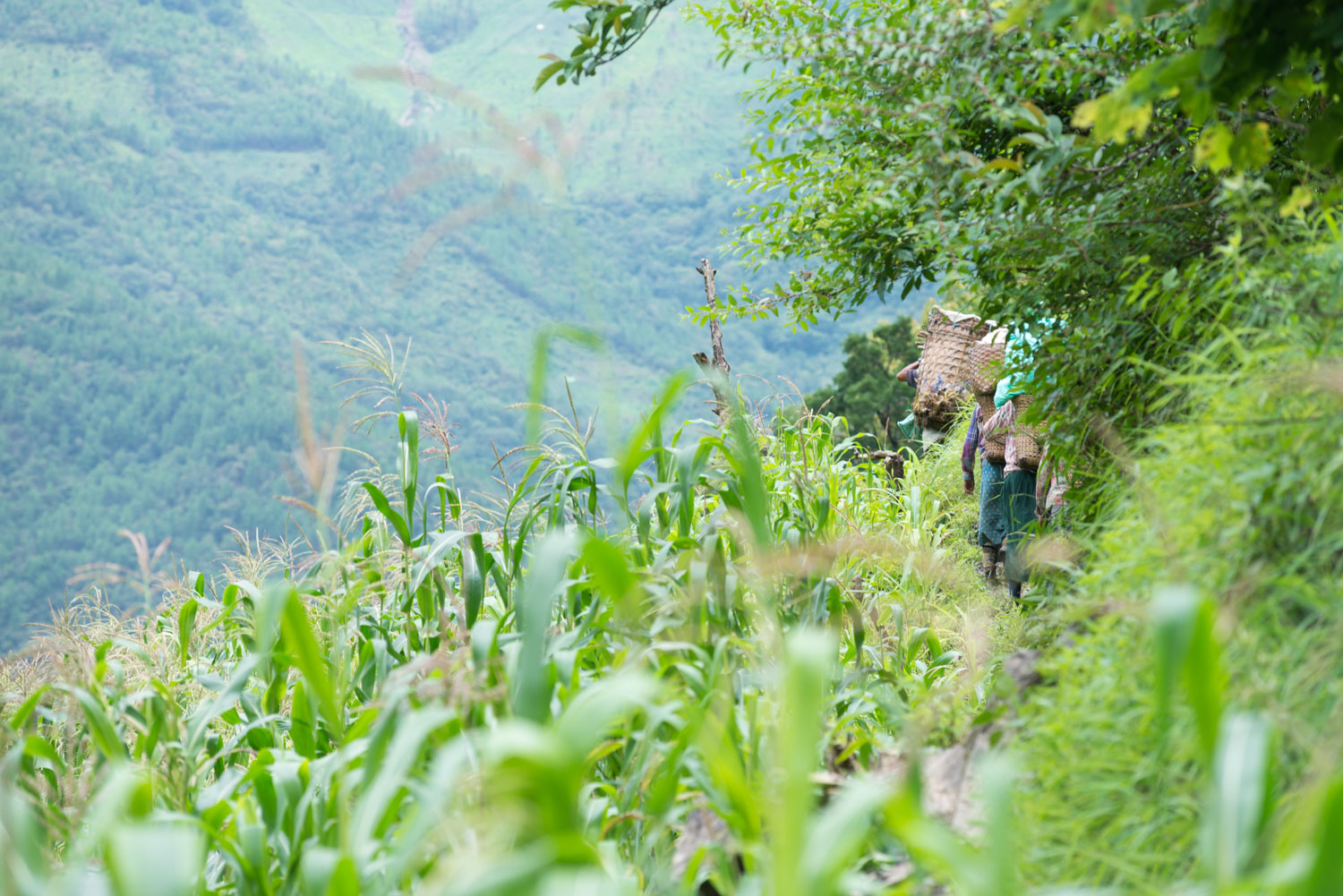
Walking to the orchard
Apple farmers and labourers walk to the orchard.
Dimpi village sits at 4750 feet. To reach the main apple orchards, the farmers must ascend to 6200 feet along precarious mud tracks. Maise (seen left) and hardier crops are grown at lower elevations. Absolutely everything must be carried by hand.

Saizang village
Neighbouring Saizang village is visible through the clouds from the trail.
Zaizang has over 400 households and both MPT and Telenor pylons, but no electricity in the village. This pattern is common in Chin state. The state capital, Hakha, only received power in the past 2-3 years.
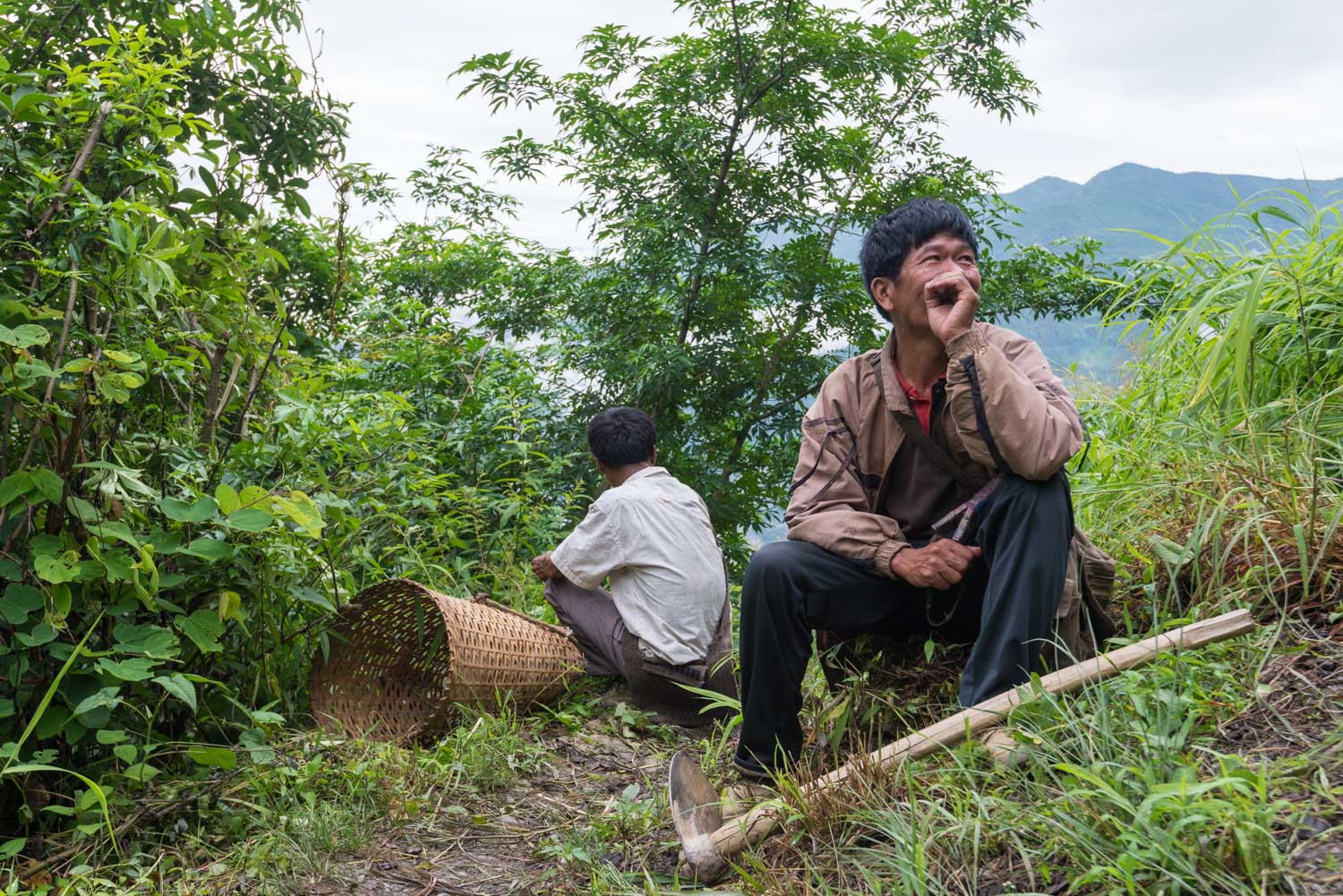
Thiau Za Dal
Thiau Za Dal, a farmer of maise and beans, rests on the walk up to the plantations. His crops support his family of 6.
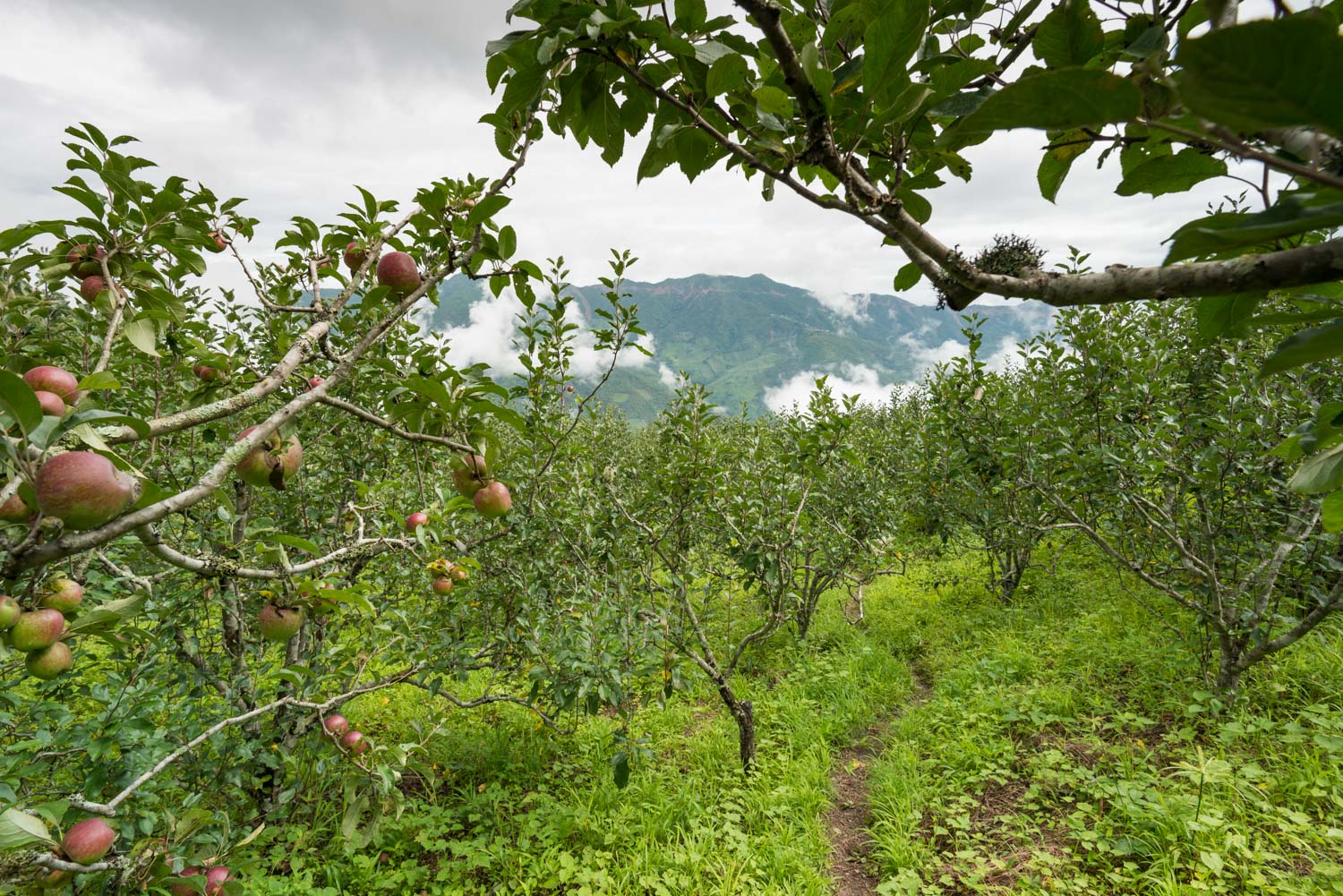
Dimpi apple orchard
One of the main apple orchards for Dimpi village.
Its 1500 trees support 5 households. Each household's trees are separated by man-made boundaries, such as small channels or walls.
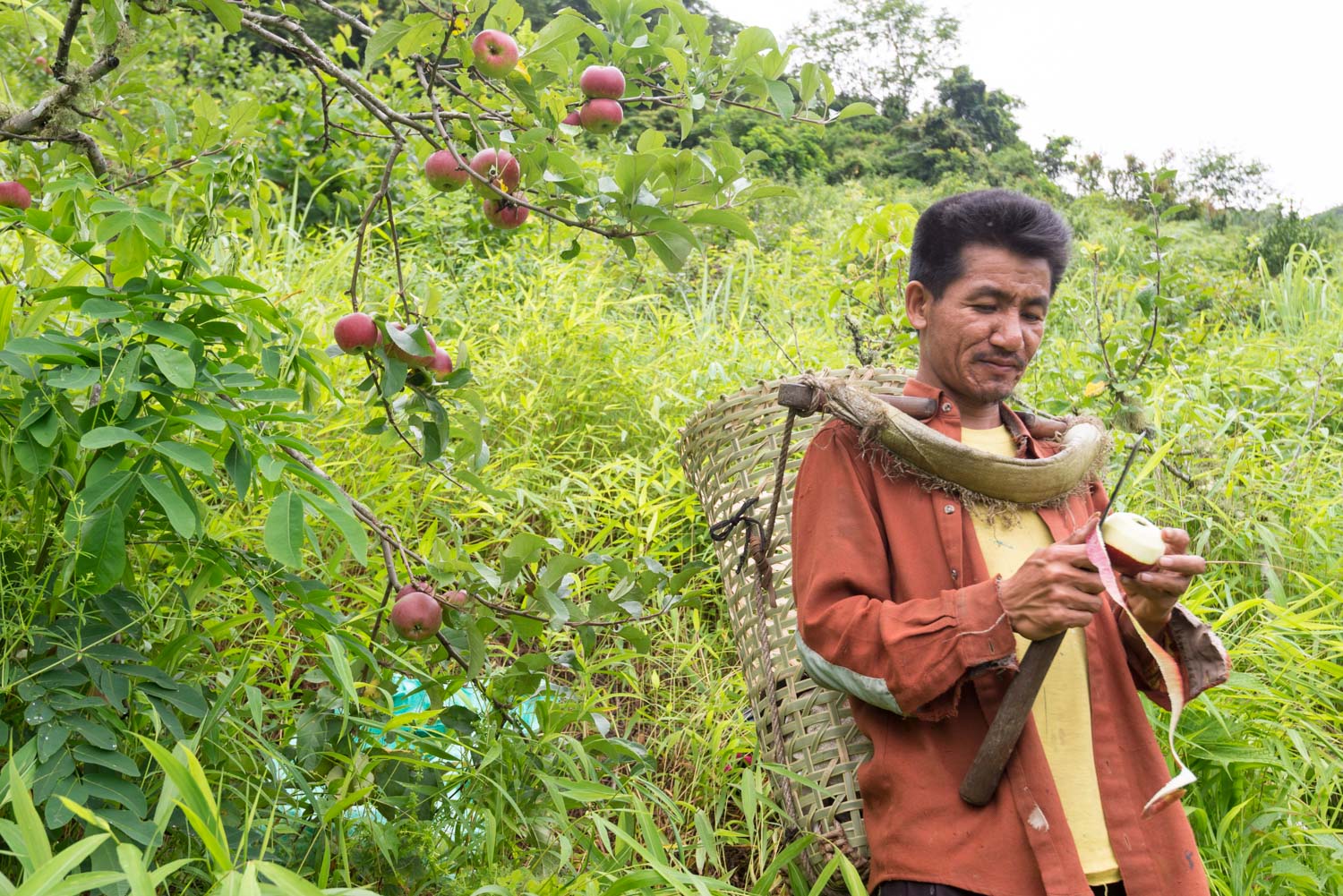
Vung Suan Thang
Vung Suan Thang, 30, peels an apple from one his trees.
He has a traditional Chin basket on his back, which is used to ferry the apples from tree to village. With the steepness of the trails and no access to horses or buffalo, everything must be carried by hand. Vuan Suan Thang also has the only garlic field in the village. Garlic is prized as an excellent cash crop.
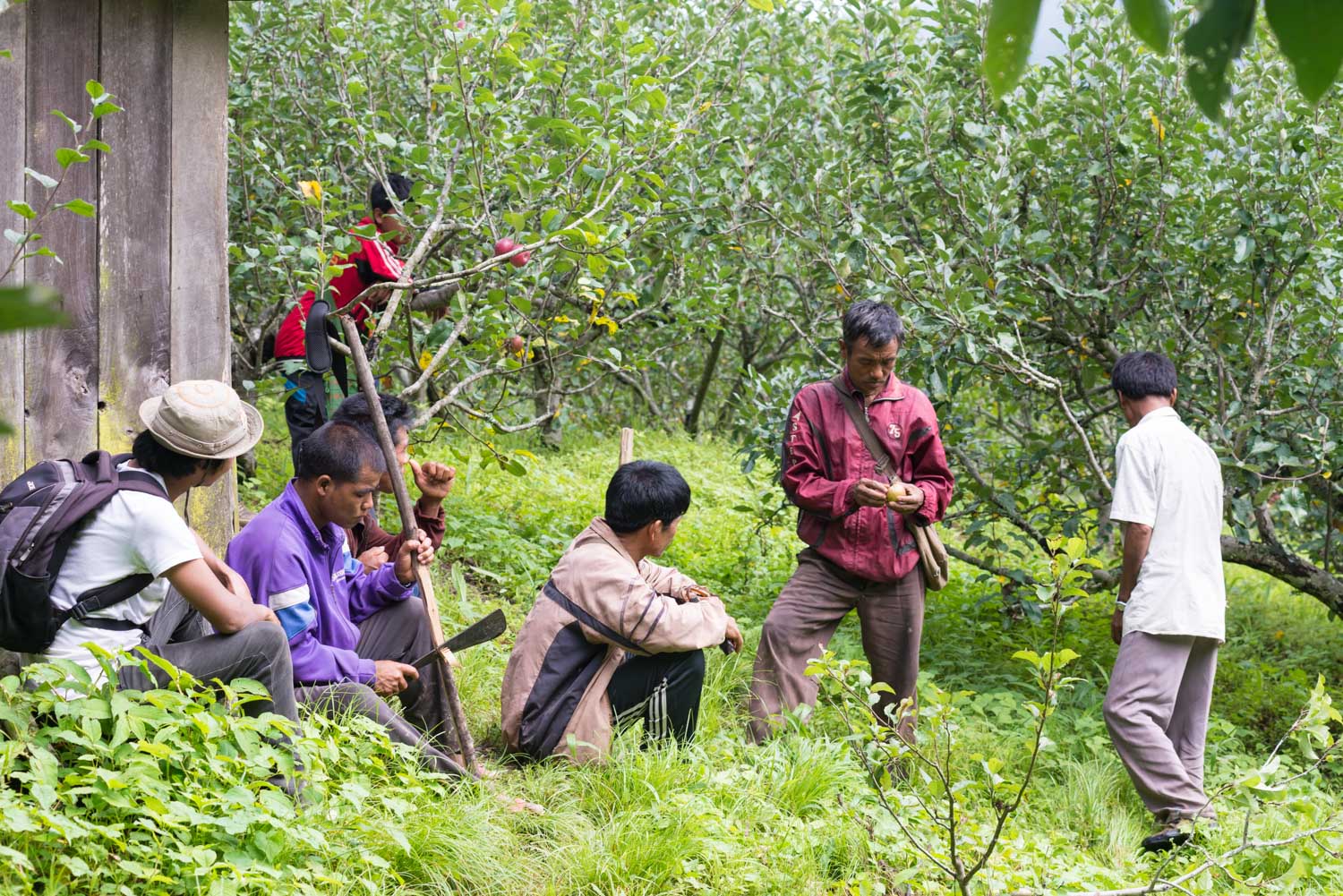
Farmers resting in the orchard
Dimpi farmers rest and inspect crops in the middle of the main orchard at 6200 feet.
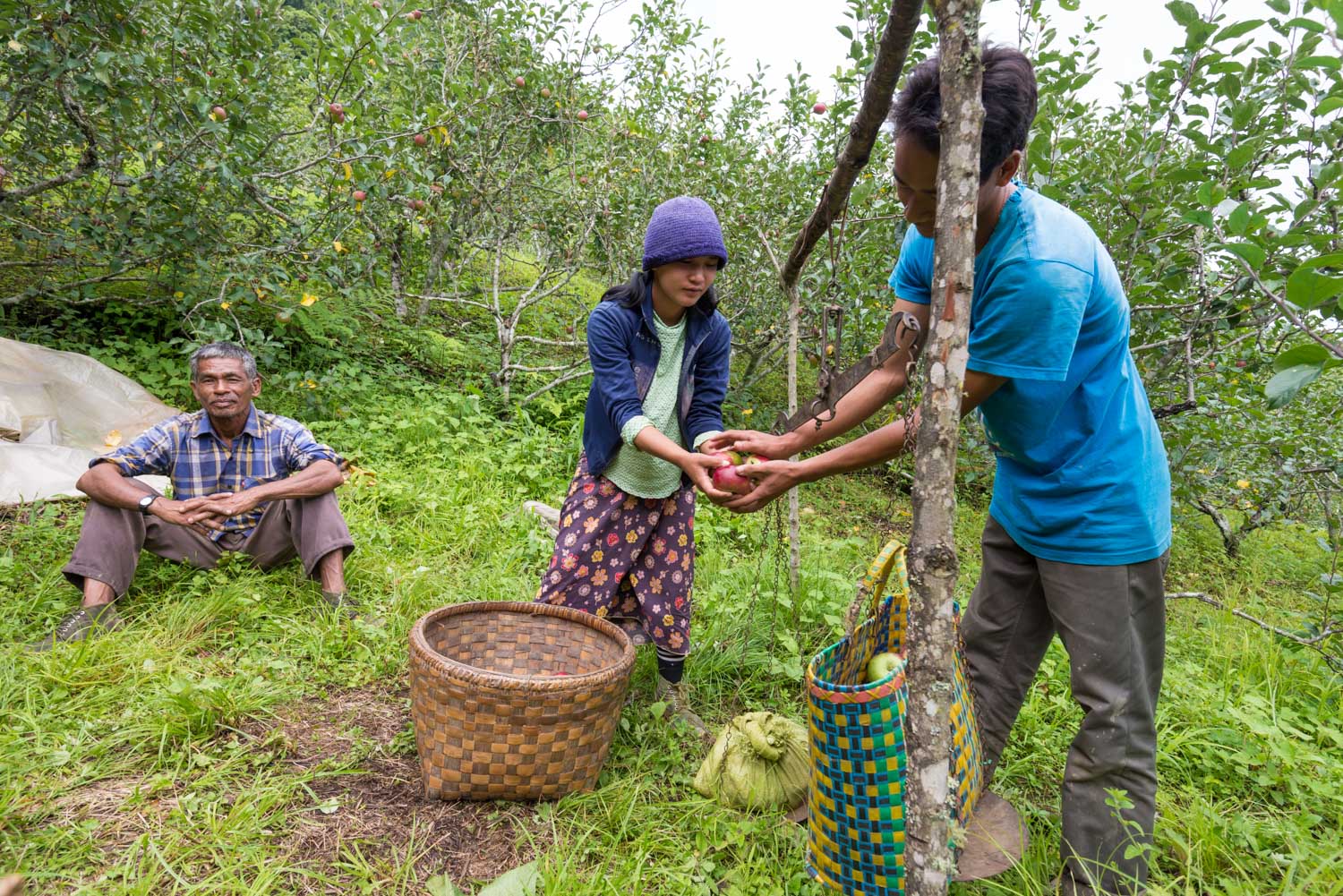
Zel Zalian
Zel Zalian, 58, watches as his nephew Thang Muan Lian and his wife Man Khan Niang weigh the apples from his orchard.
Labourers without their own farms are paid proportionately to the amount of apples they can carry, either to 2 miles to Dimpi village or on foot a further 6 miles to Sozaang. A strong person can carry 40 viss in one trip (around 55 kg).
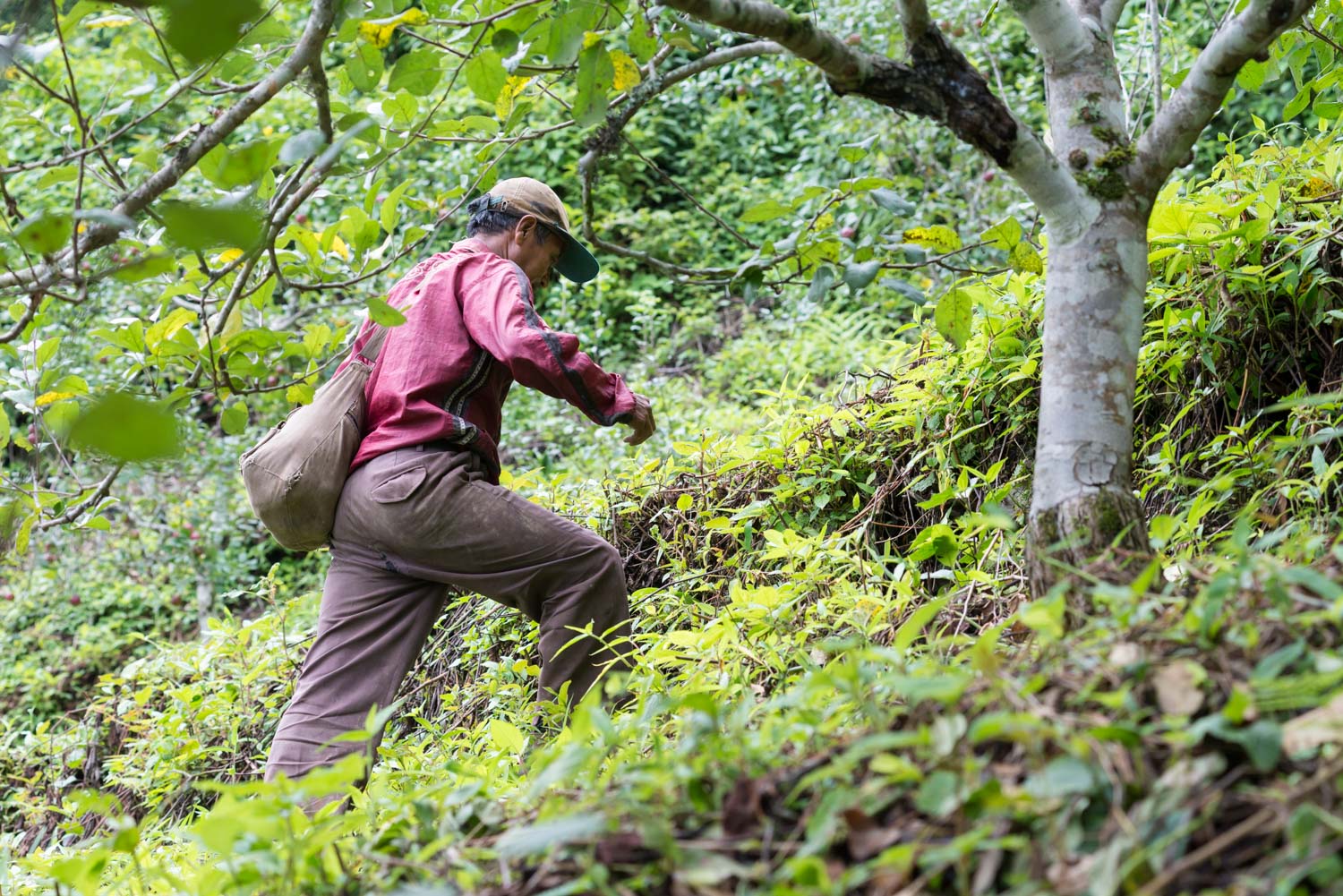
Moving through the orchard
Jin Khan Dar moves through the orchard's upper area.
The orchard's higher slopes have no formal trails, which makes moving about quite difficult. Additionally, there are vipers in the undergrowth, although as farmers kill them when they see them their numbers have dropped significantly. If bitten, it is unlikely the person in question would survive long enough to get to the nearest hospital in Tedim, a several hour journey by foot and motorbike.
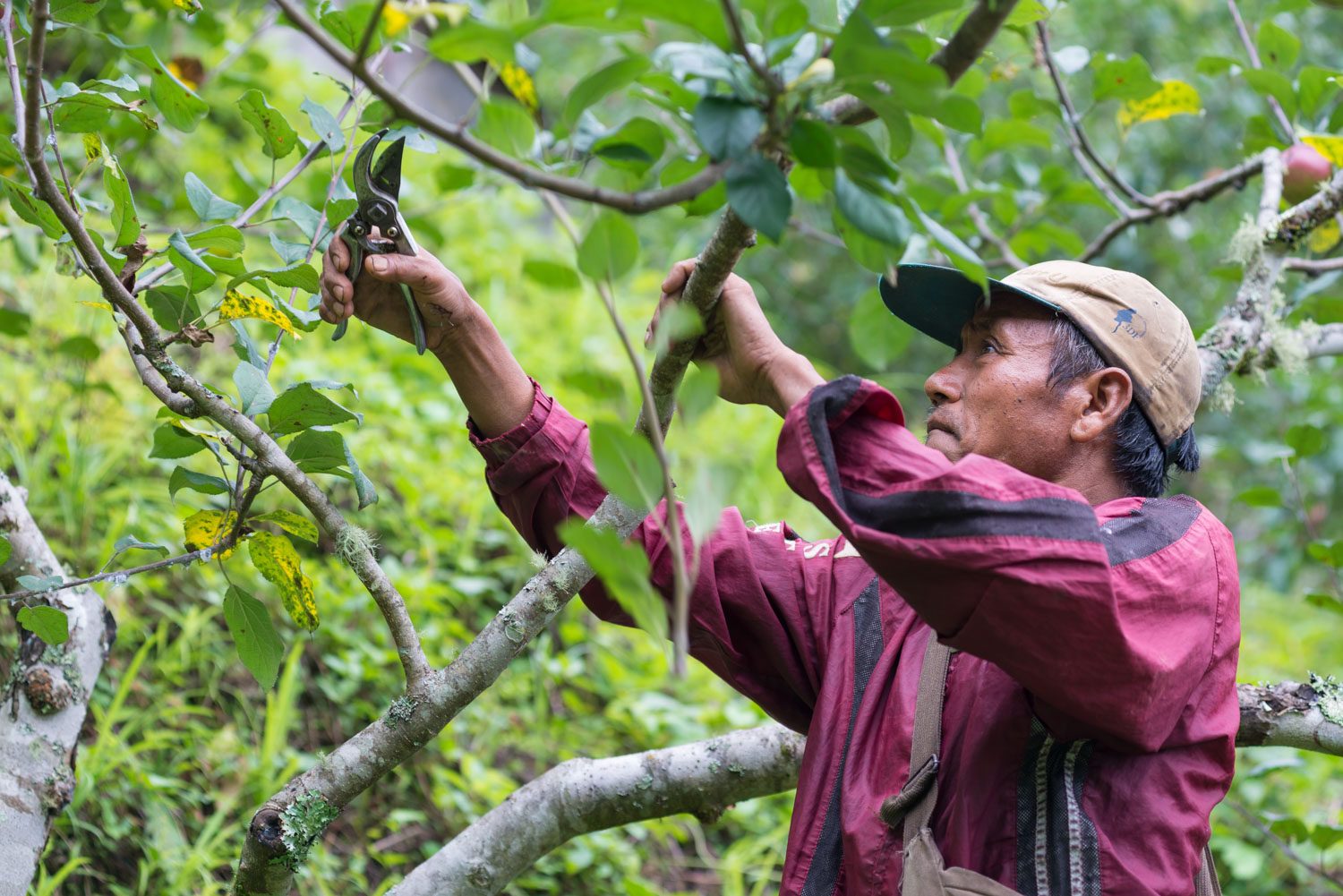
Pruning trees
Jin Khan Dar prunes his orchard as he moves through it.
The two biggest problems for apple farmers in Chin state are knowledge and transportation. Many of the farmers say they simply do not know enough to care for their trees properly, and are seeing disease and diminishing yields as a result.
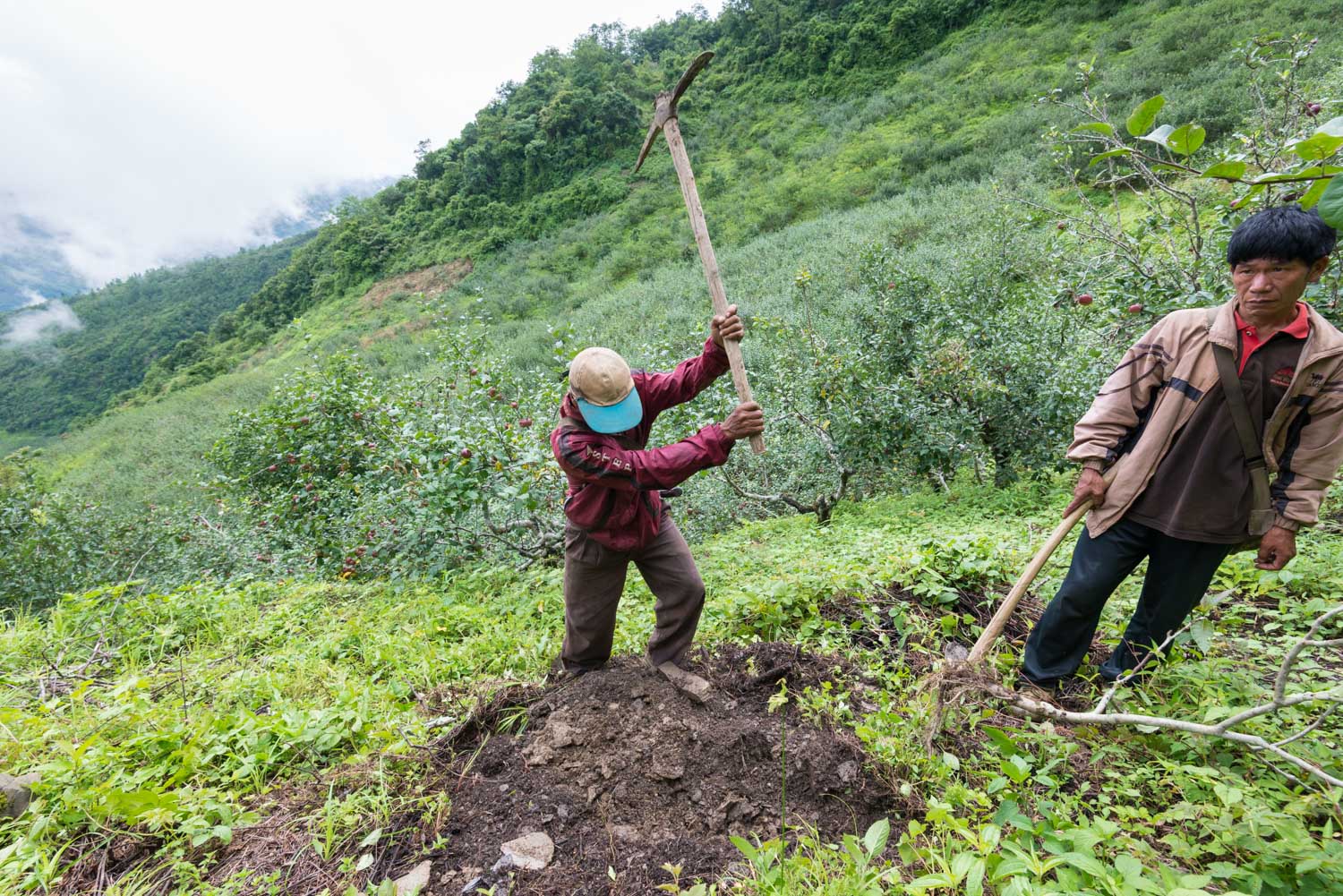
Planting an apple tree
Jin Khan Dar and Thiau Za Dal clear a plot to plant a sample tree in the orchard. A 3 year old tree, it is unlikely it will flourish as its taproot is not long enough.
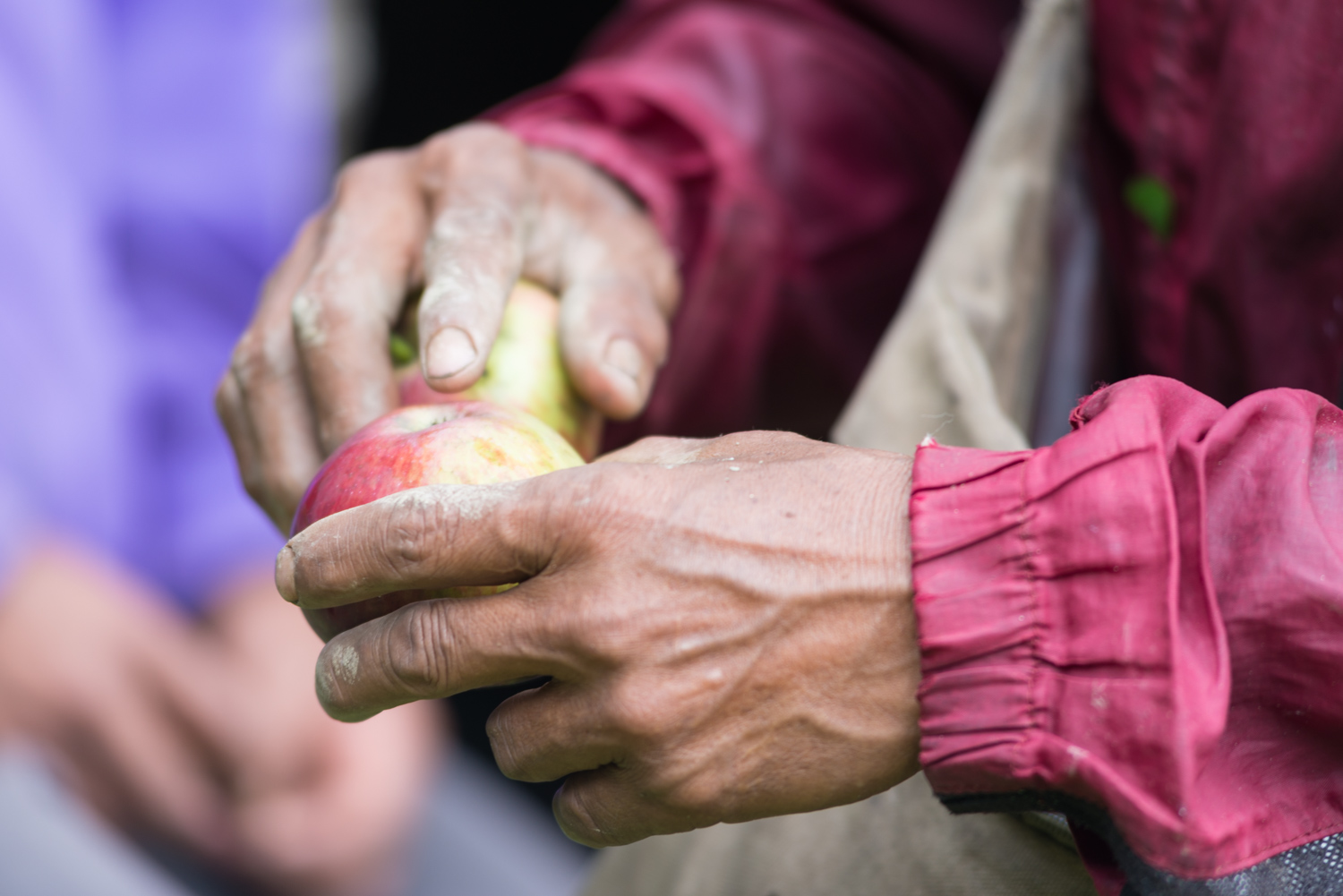
Apple varieties
Jin Khan Dar inspects one of his apples.
Most of the apples grown in the Dimpi orchard are of the variety known locally as 'Red Devils', which is a slightly bitter, crunchy apple. There are a number of sweeter varieties being grown within the same orchard, however.
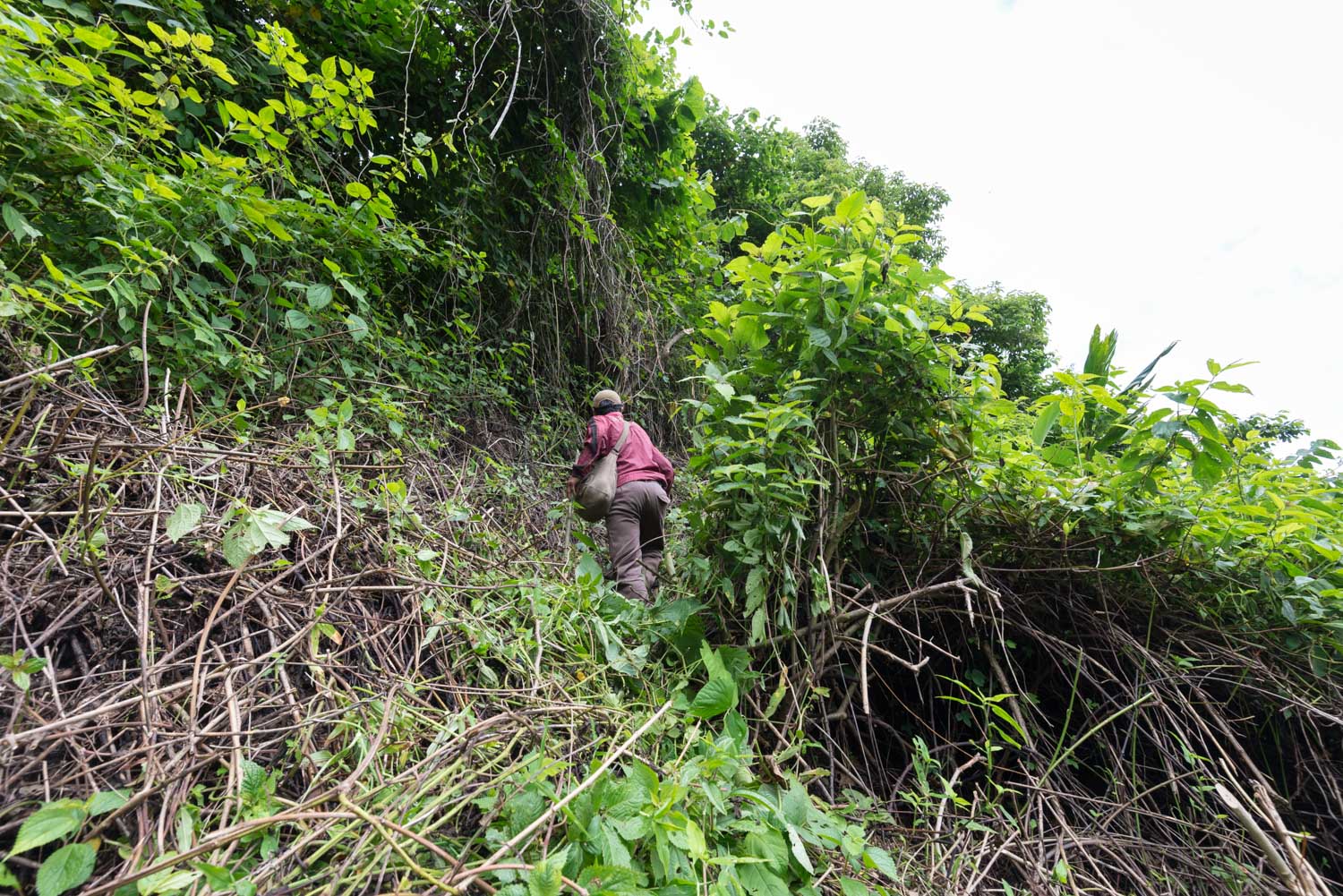
Reaching the upper orchard
Jin Khan Dar hacks away undergrowth with a machete to reach his highest orchard, an additional 300ft uphill scramble through bushes and along high ledges.
This brings the total elevation to 6500ft. Tending to, and harvesting apples at this elevation and distance from the village is very demanding.
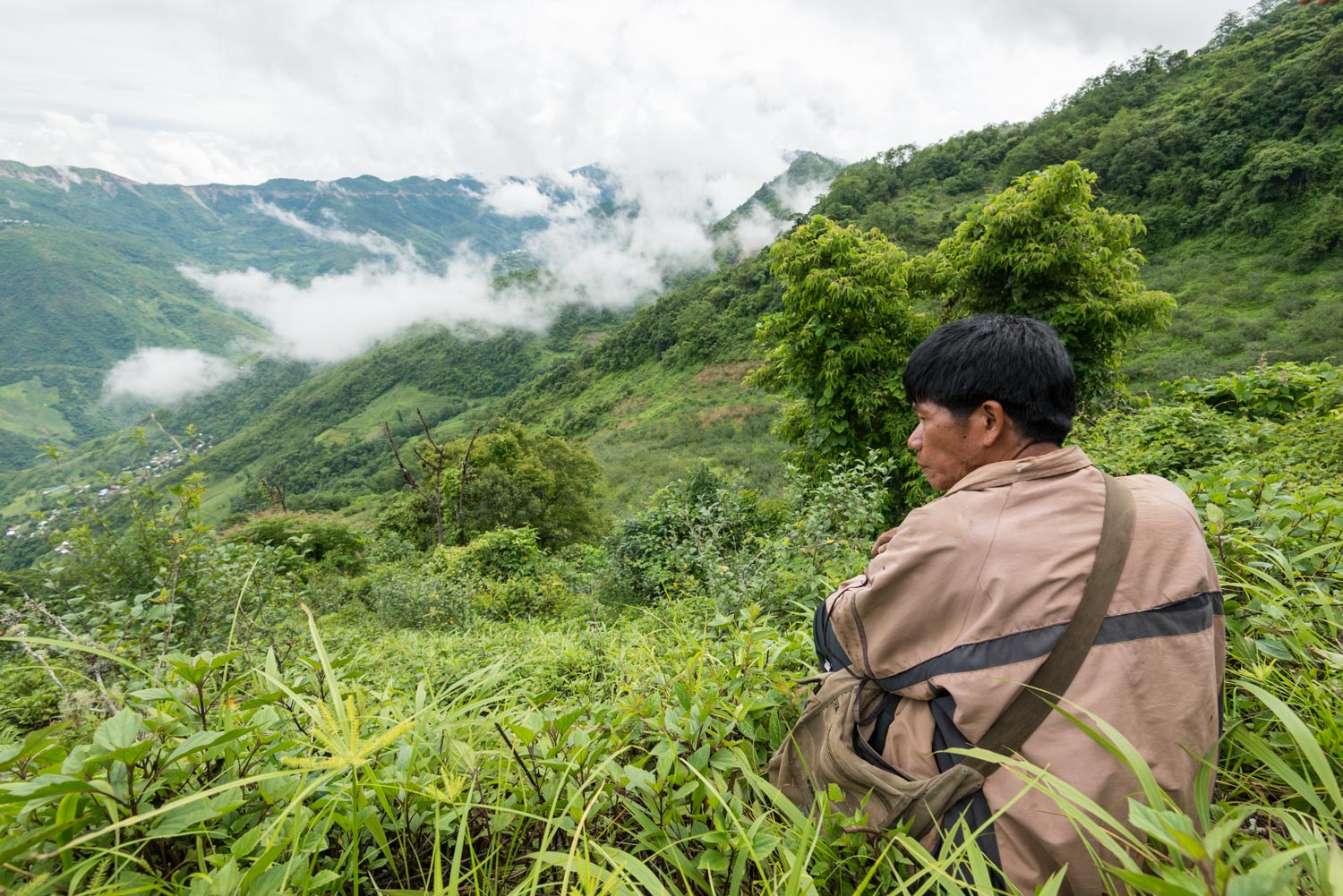
Thiau Za Dal surveys the orchard
From Jin Khan Dar's highest orchard, Thiau Za Dal surveys the main orchard and the valley below.
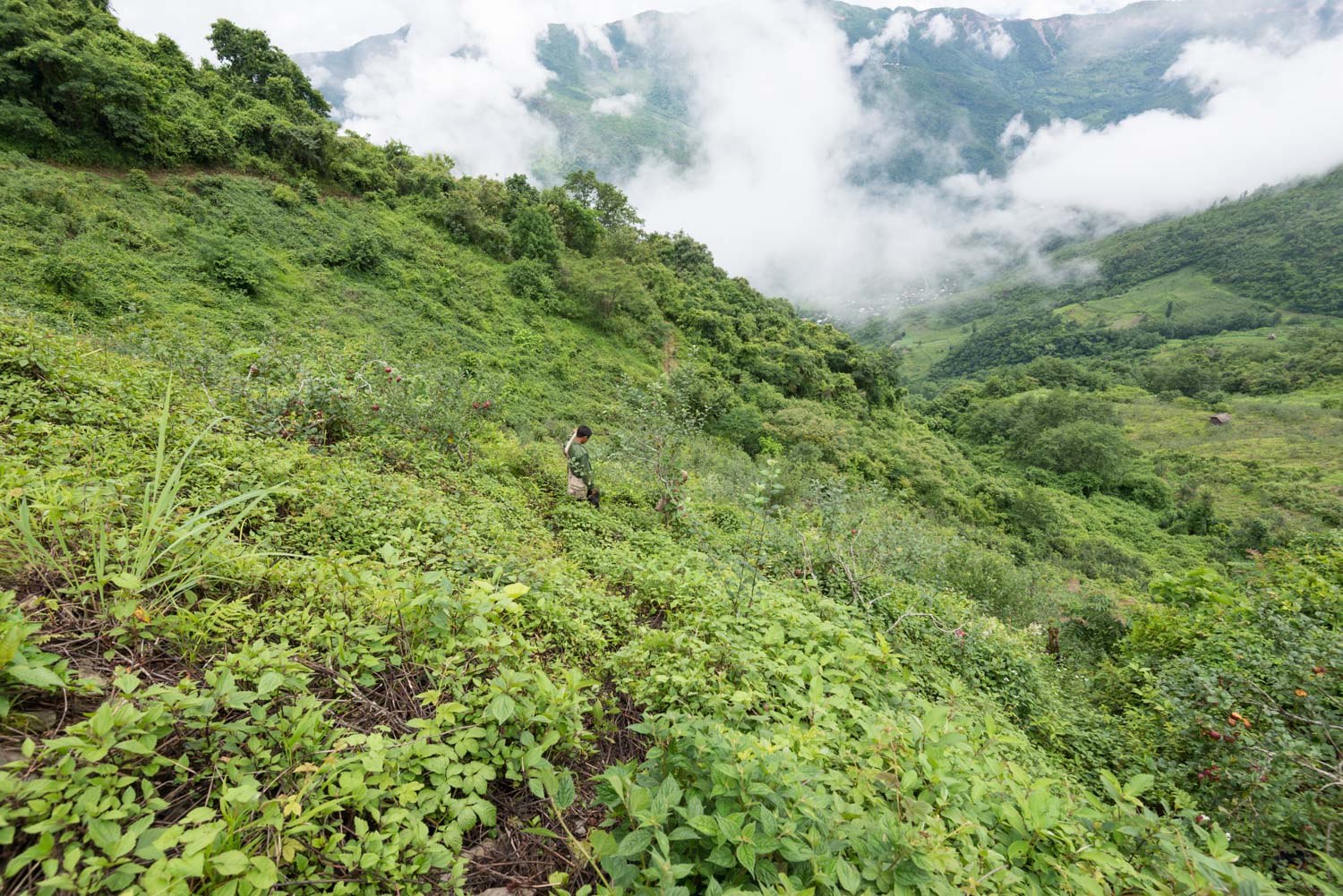
Descending from the orchards
From Jin Khan Dar's highest orchard, it is a slippery 1750ft decent to Dimpi village.
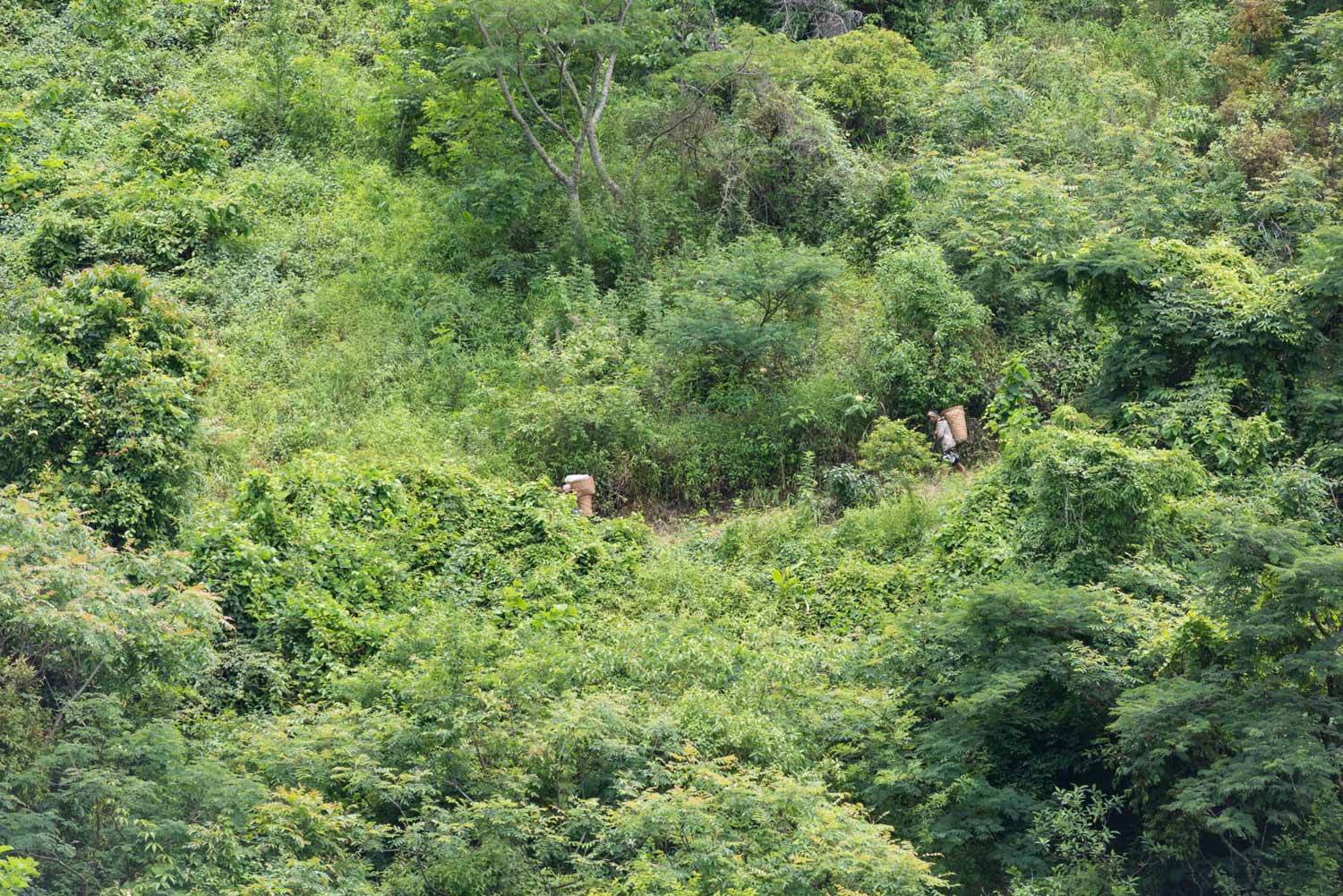
Labourers carry apples from the orchards
Labourers using traditional Chin baskets carry apples down from the orchards.
Once the apples have been delivered to Dimpi or Sozaang, they are either sold or consumed there, or taken on to Kalaymyo.
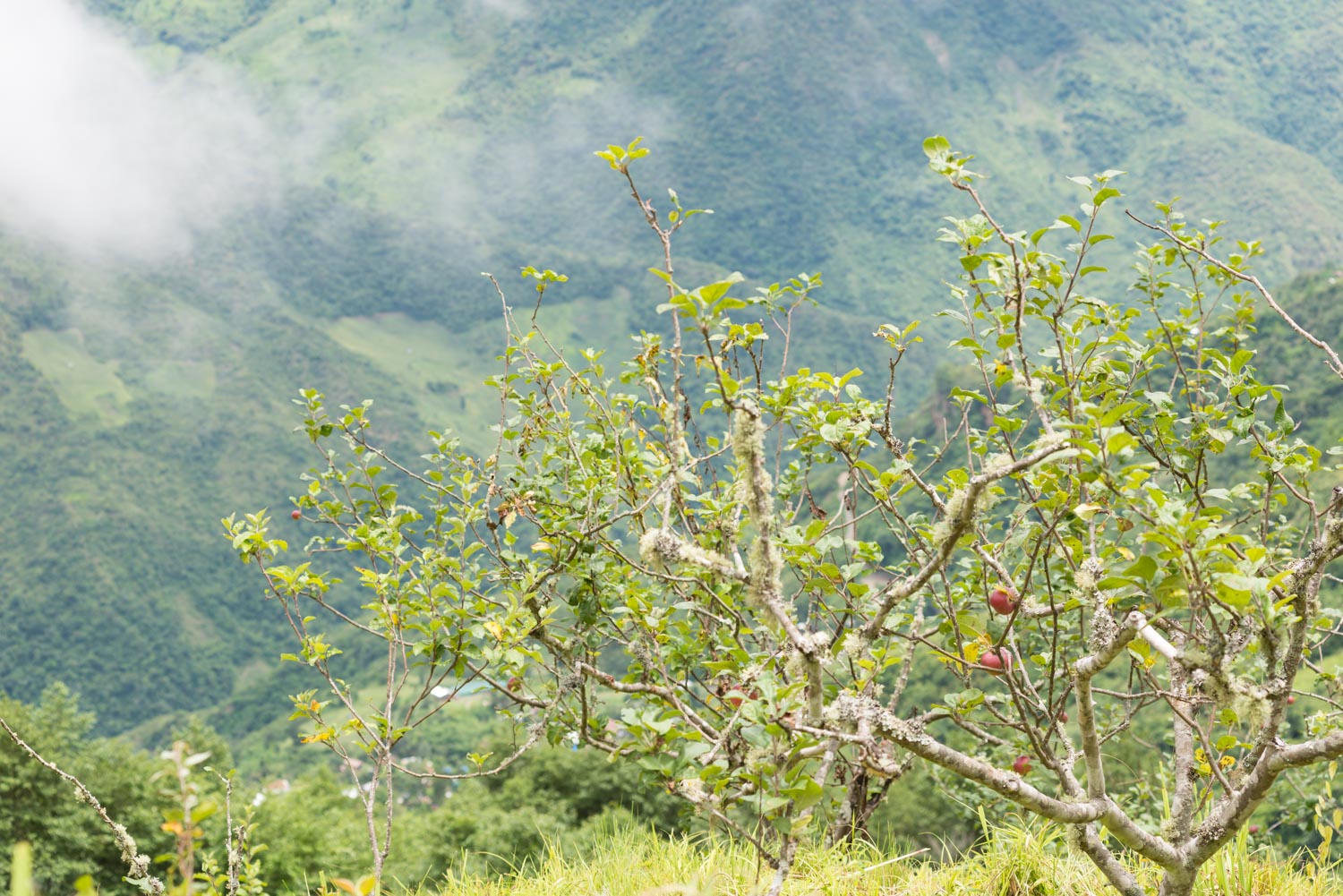
Infected apple trees
The grey moss on this apple tree is killing it, and many others around it. The farmers do not have the knowledge to treat it, even though it severely threatens their livelihood.
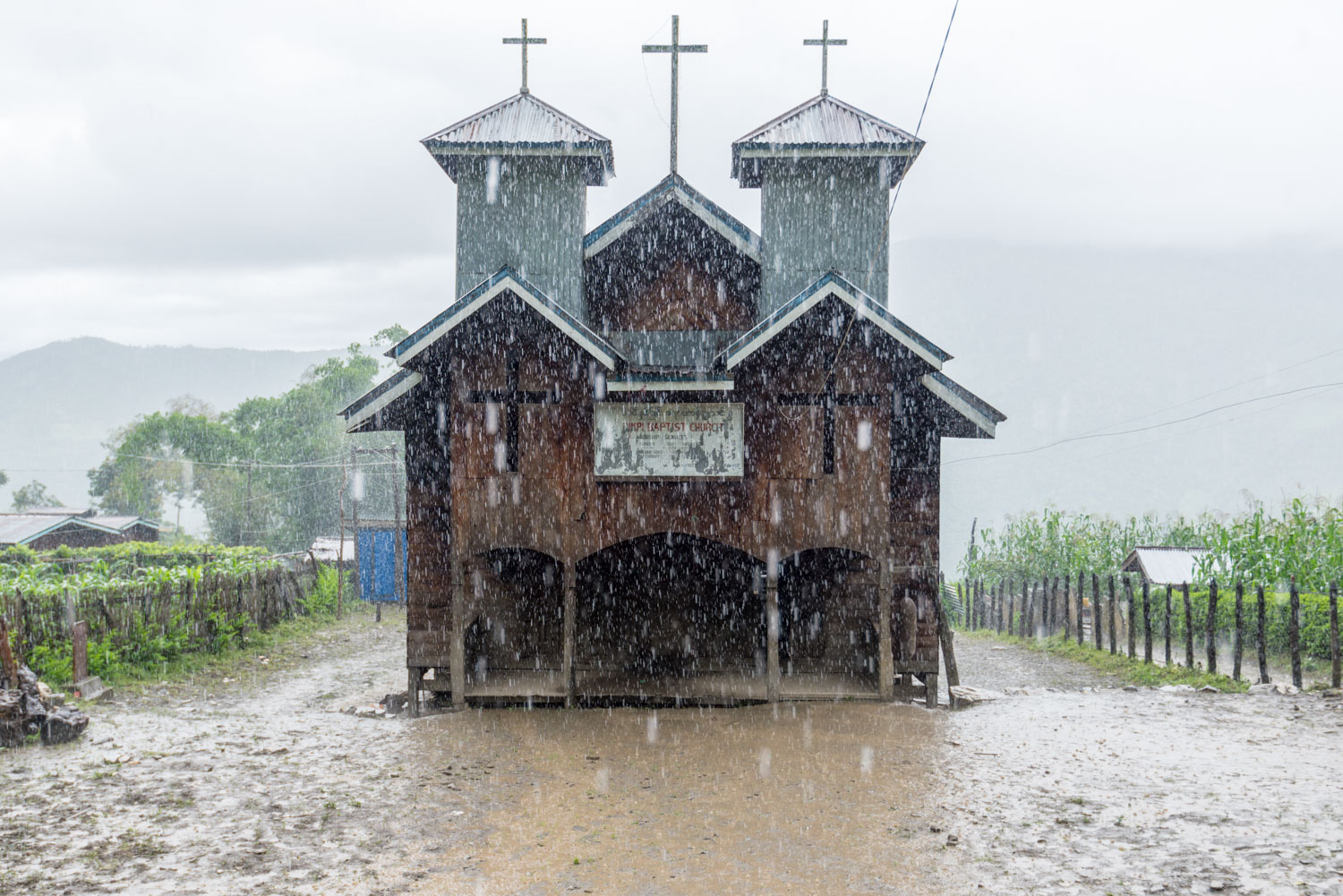
Rain falls in Dimpi
Having escaped rain in the morning, villagers in Dimpi are usually forced to wait indoors for the rain to cease.
Chin state recieves an average of 1880mm of rain, most of it falling in just a few months of the year. This heavy rain brings with it the additional threats of unsafe footing, landslides and low visibility.
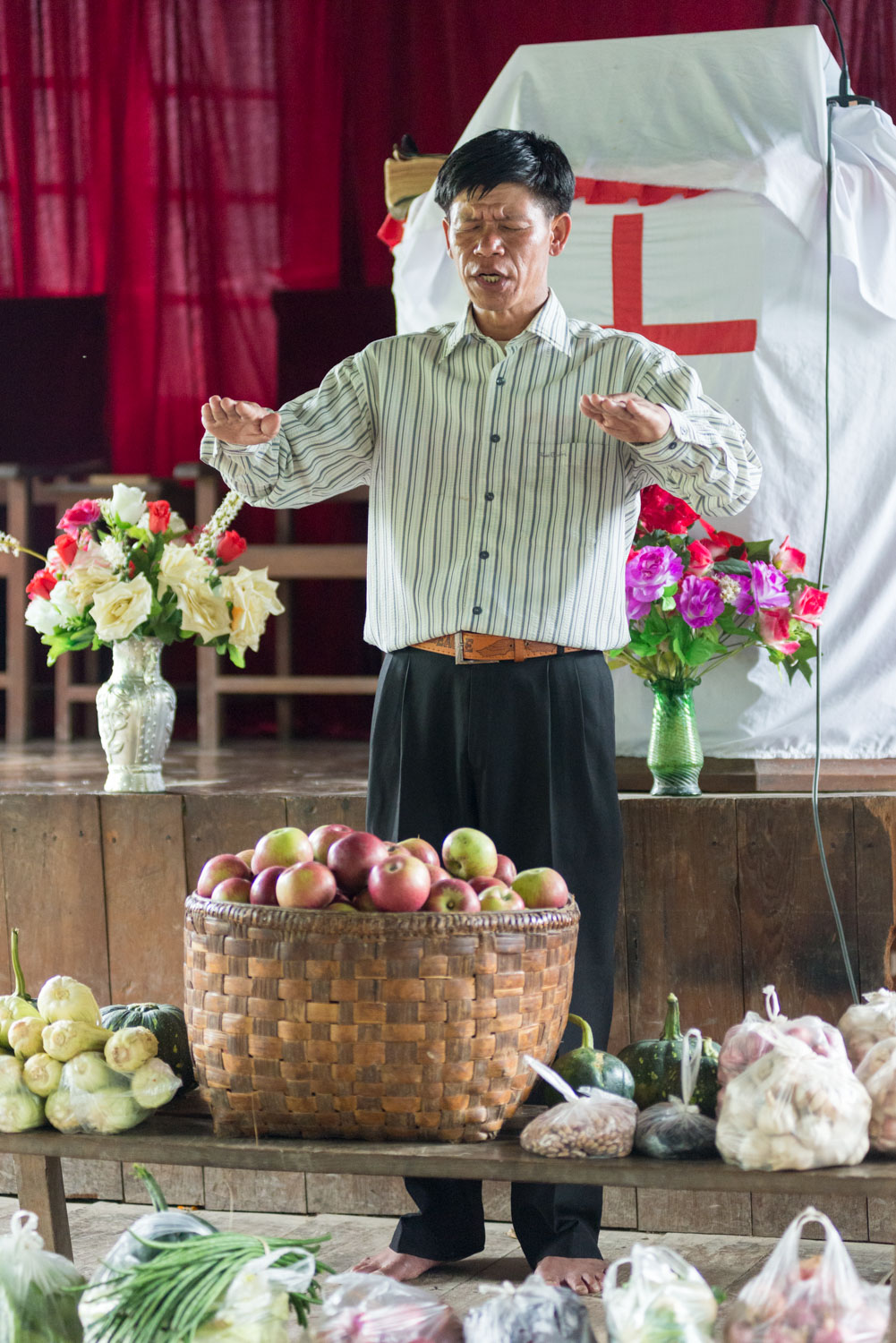
Pastor Zam Sawm Sing
Dimpi pastor Zam Sawm Sing says a harvest prayer in the Baptist Church.
Aged 47, he has been the pastor since 1997. He has 5 children, all of them boys.
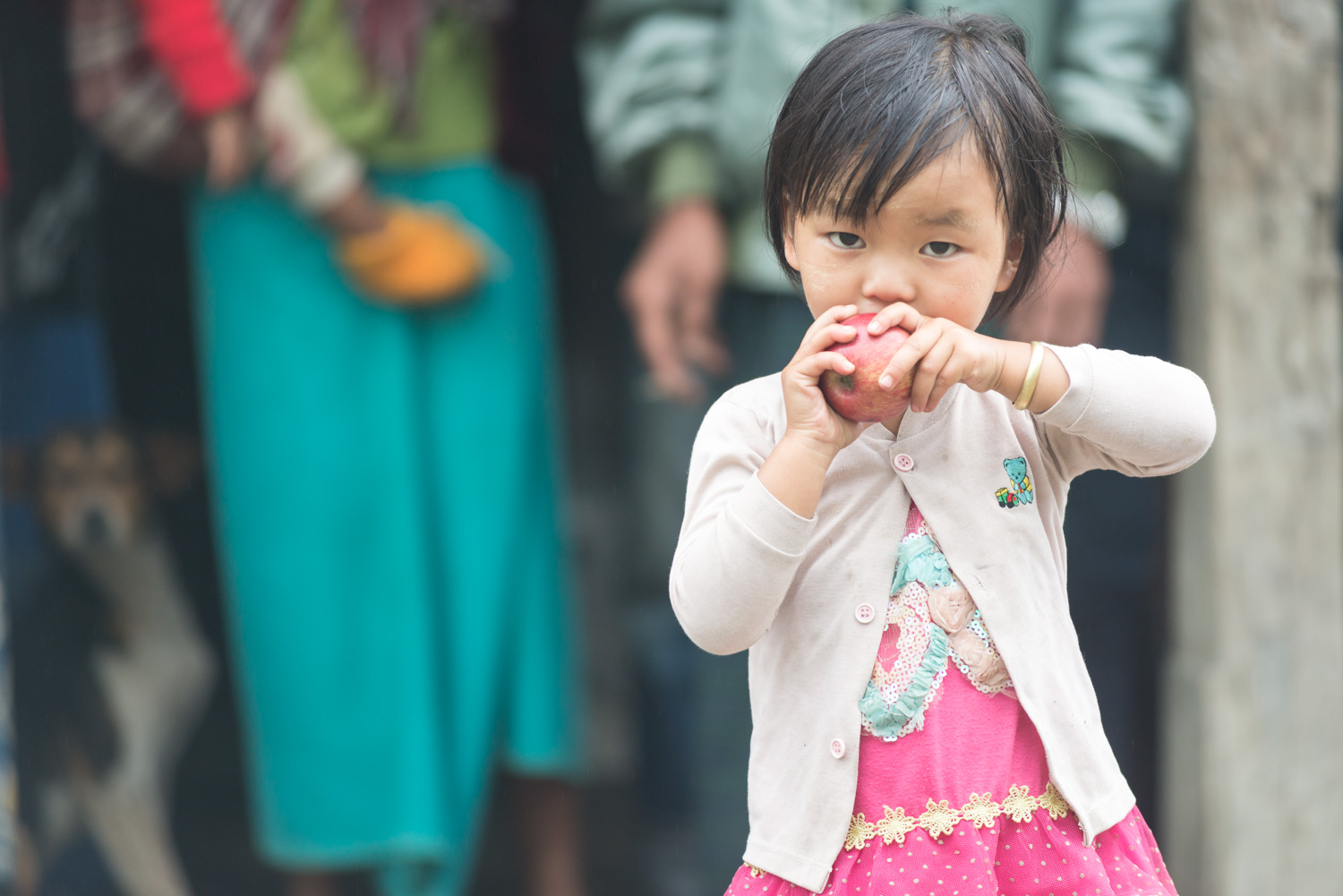
After the sermon
After the sermon, a young Dimpi villager enjoys one of the area's apples.
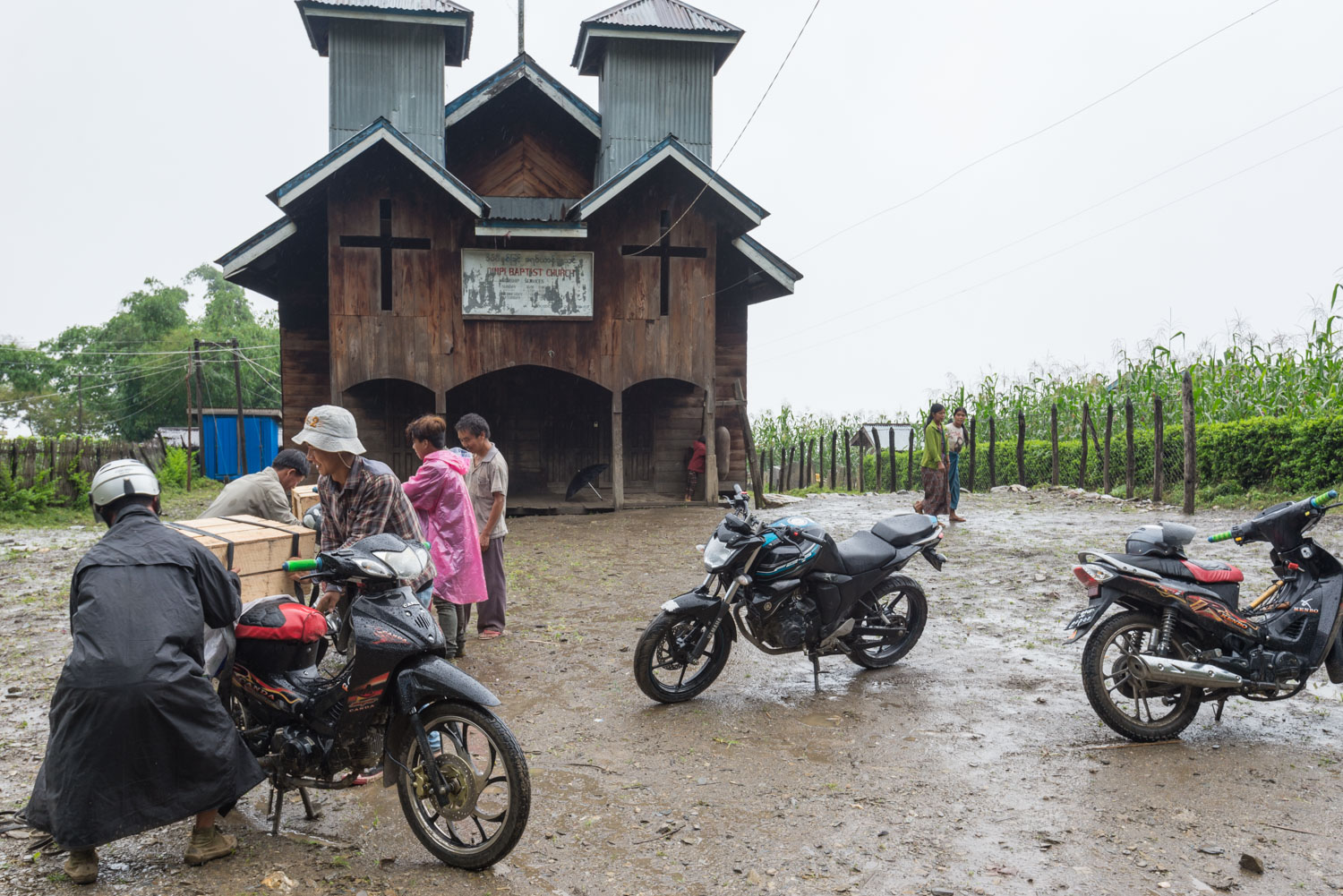
Packaging apples for transit
Dimpi villagers package apples for transit to Sozaang by motorbike, where it will be sent onward to Yangon by car and bus.
For those able to afford it, this method of transportation is much faster, although it's not cheap at around 10000 kyat/box ($7.50).
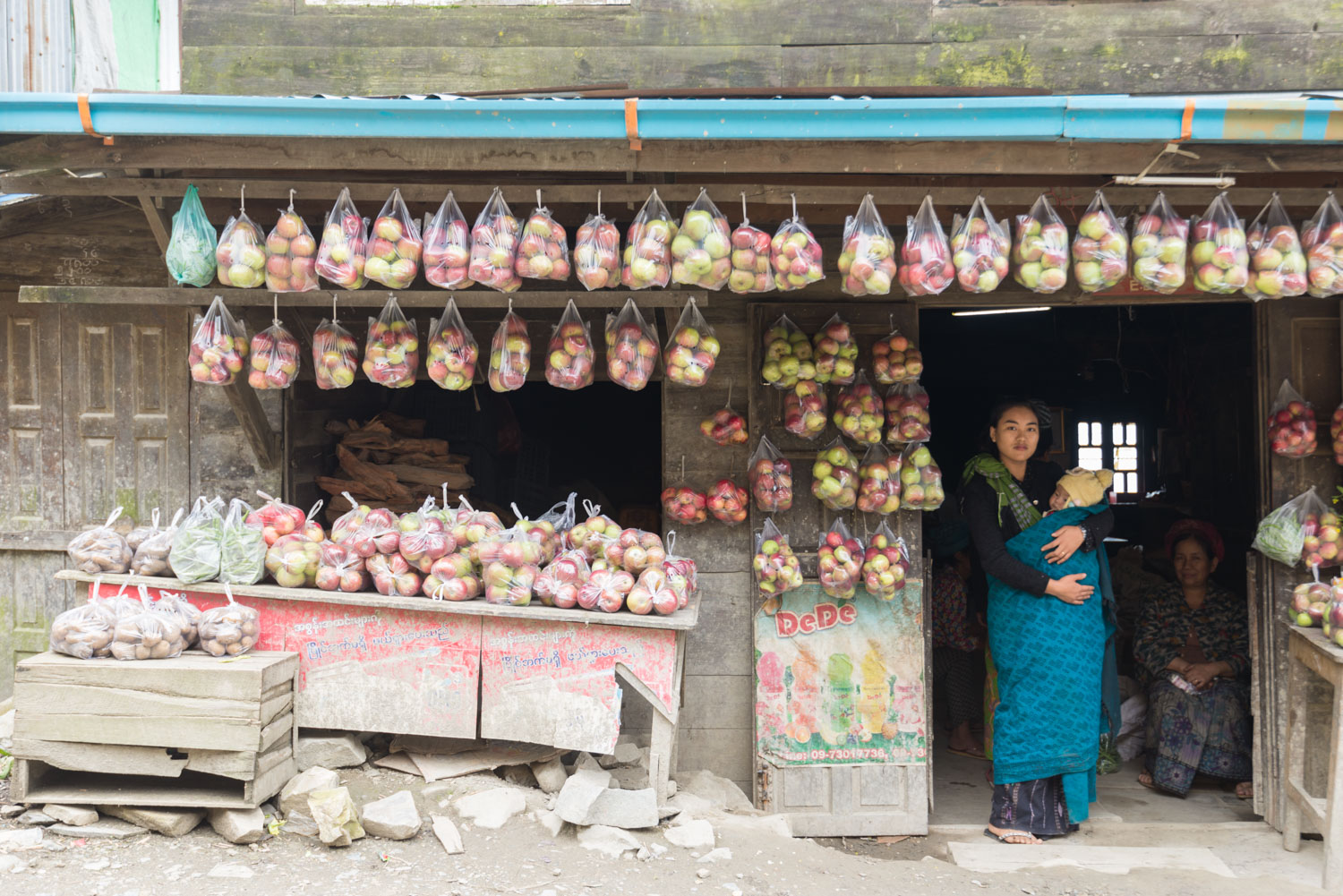
Dim Dim
Dim Dim, a Sozaang village apple seller, stands in front of her shop.
With her sister's baby in her arms, she does not run for each arriving bus like many of the other sellers. Some of the apples sold in Sozaang come from Dimpi village, while others from Dimpi are sent further to Kalaymyo. There are also apples from different neighbouring villages.

The Sozaang apple sprint
Apple sellers in Sozaang village run to be the first person to reach each bus, minibus and lorry that stops for refreshments.
They fetch a higher price for the apples here than if they must transport them 2-4 hours to the much larger city of Kalaymyo in Sagaing division.
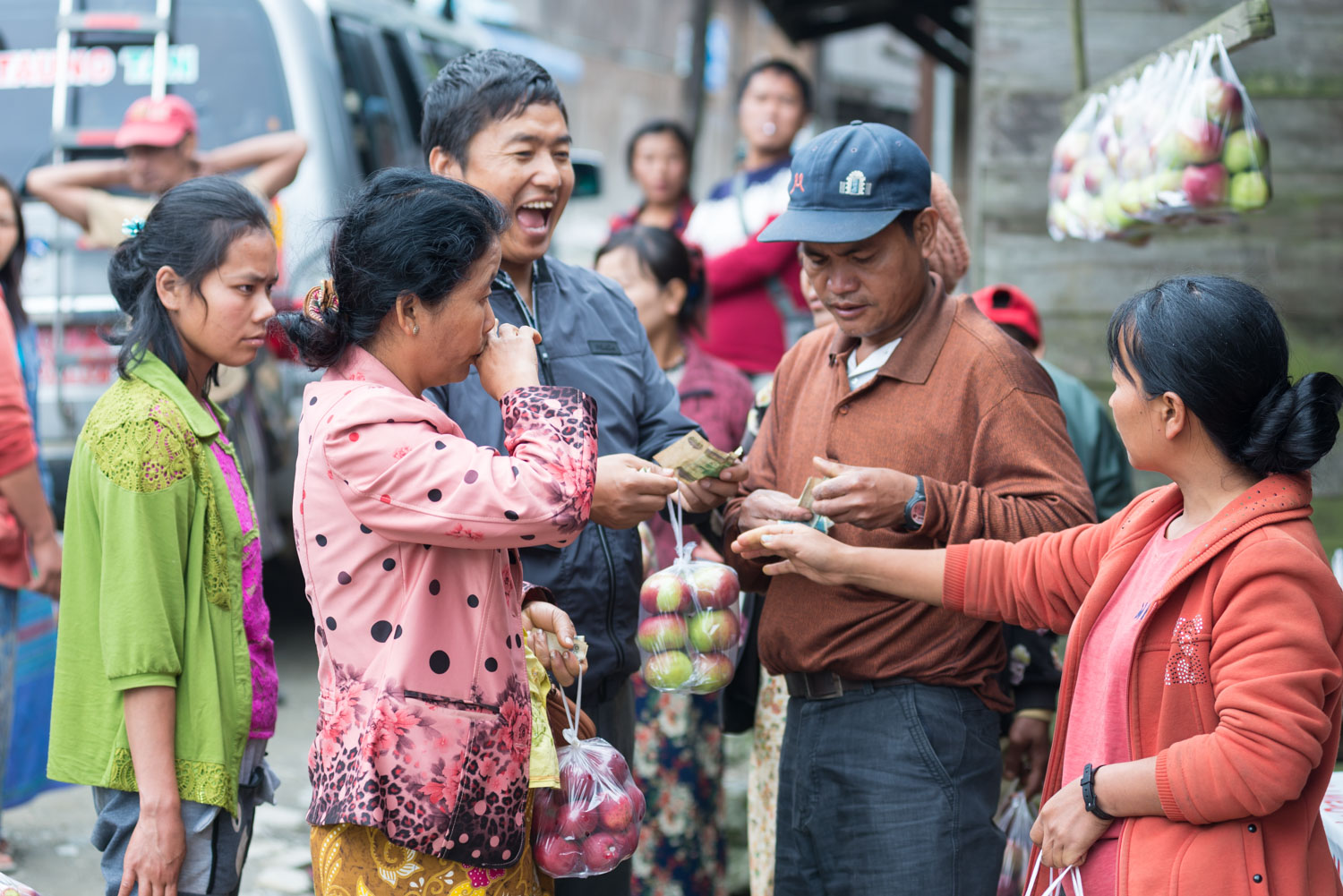
Negotiating a price
Each sale is carefully (if not always this cheerfully) negotiated.

































